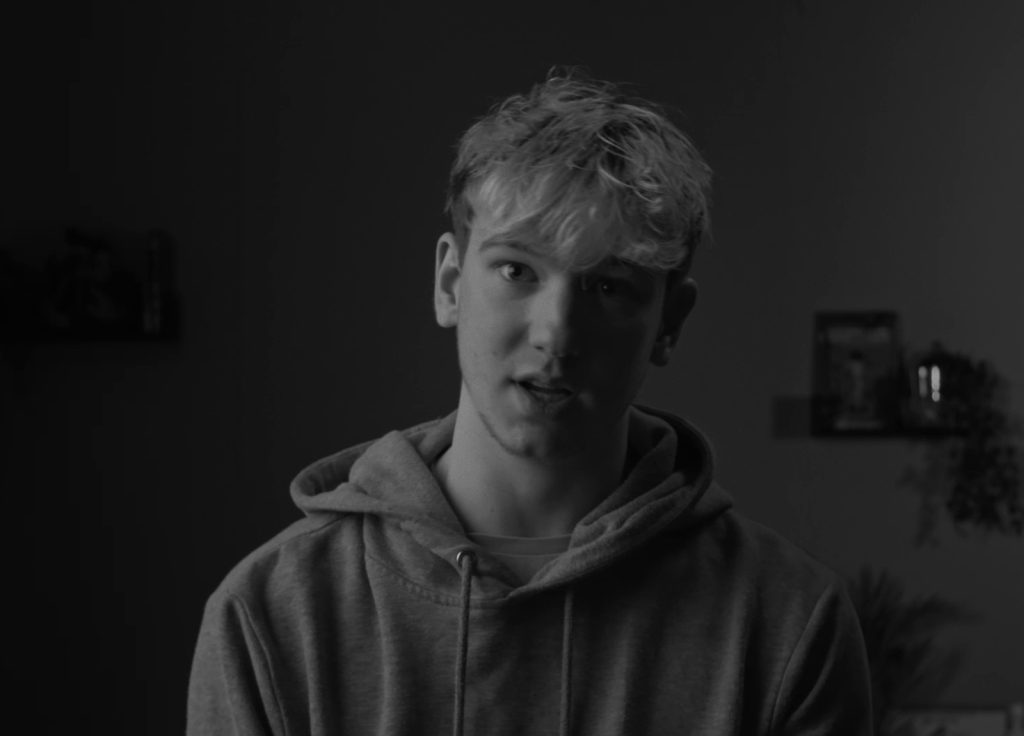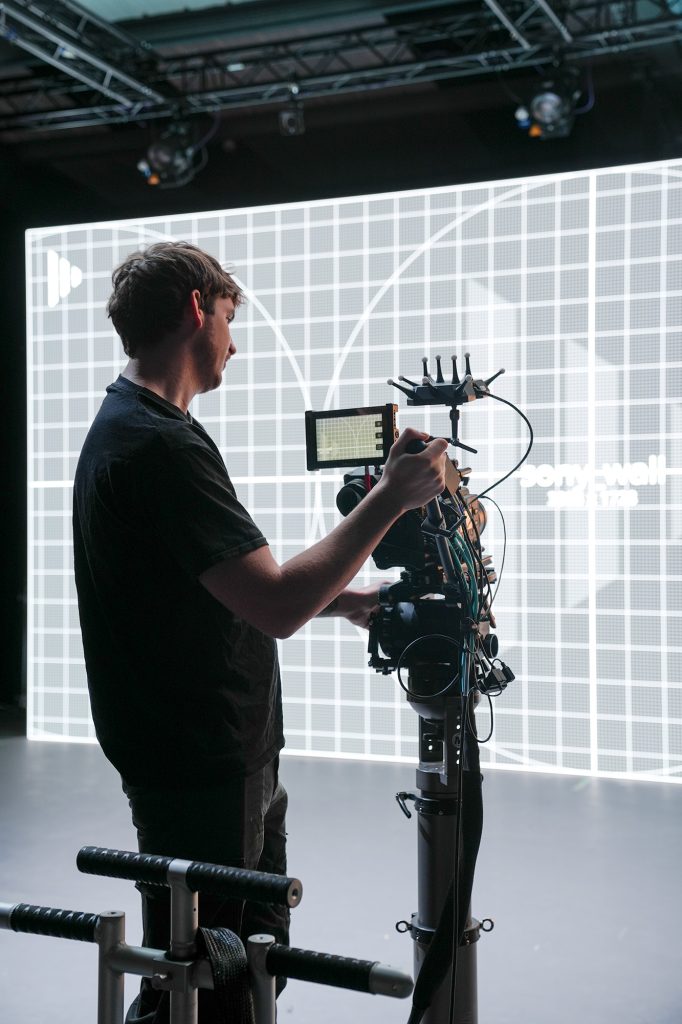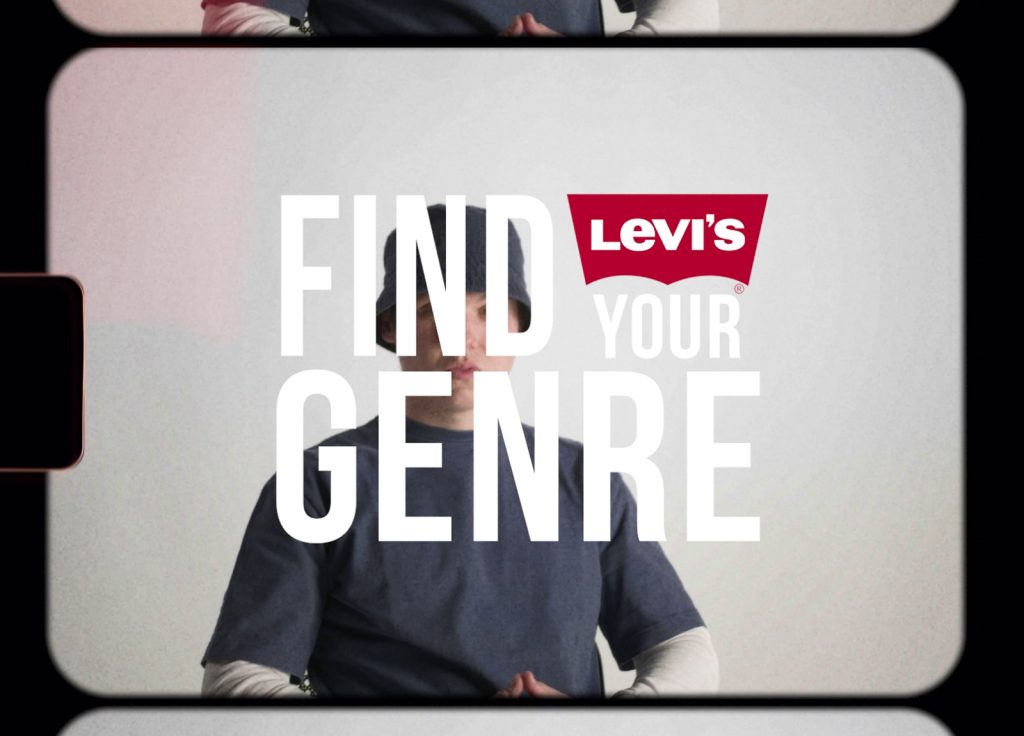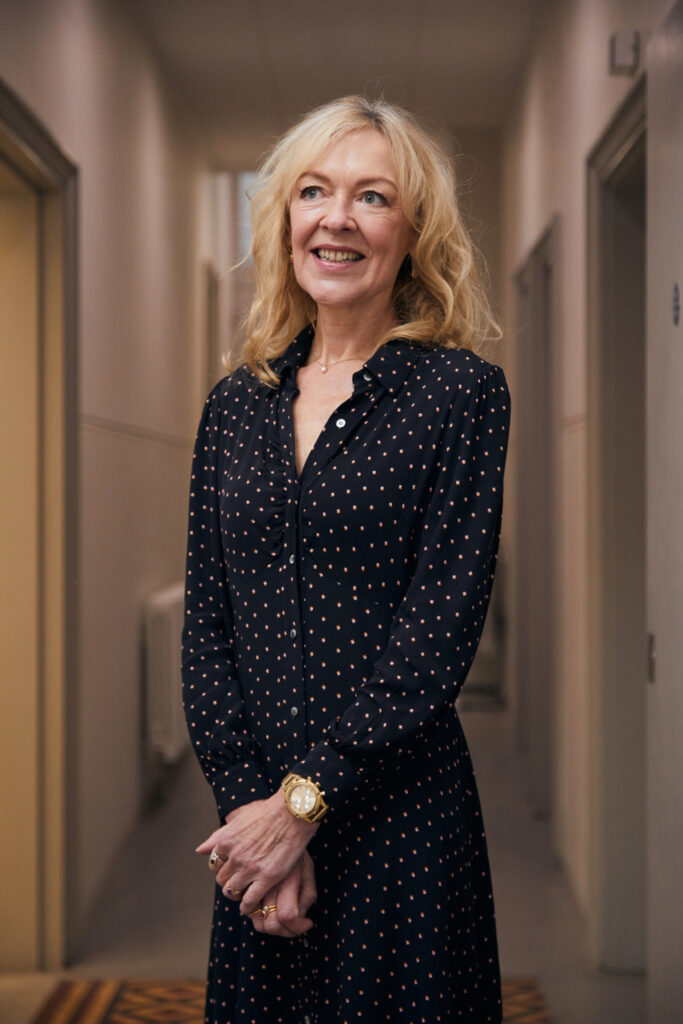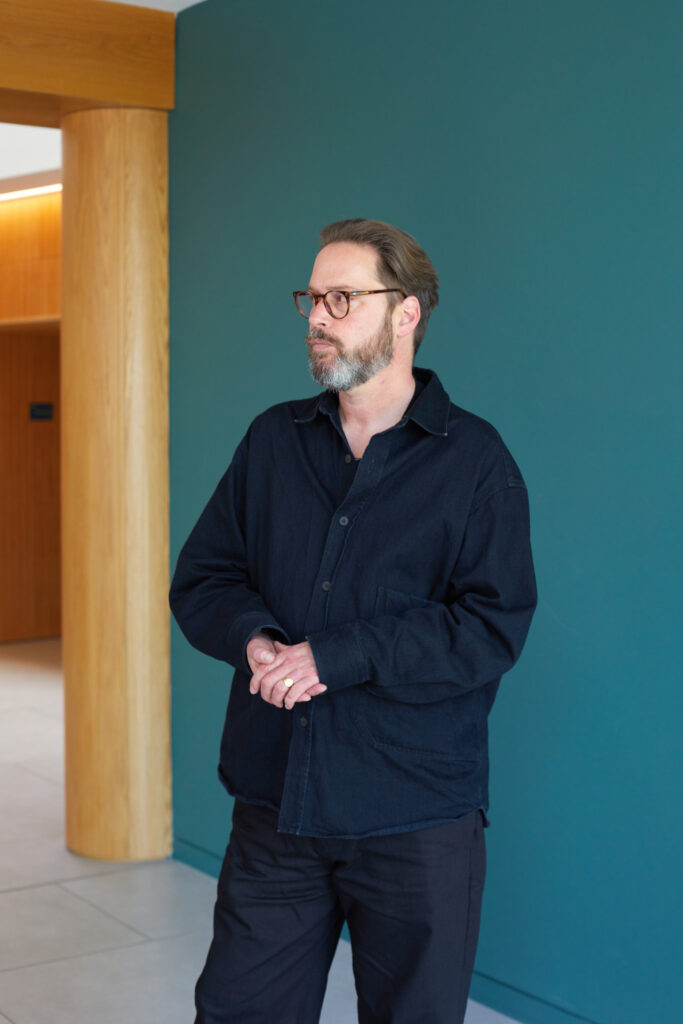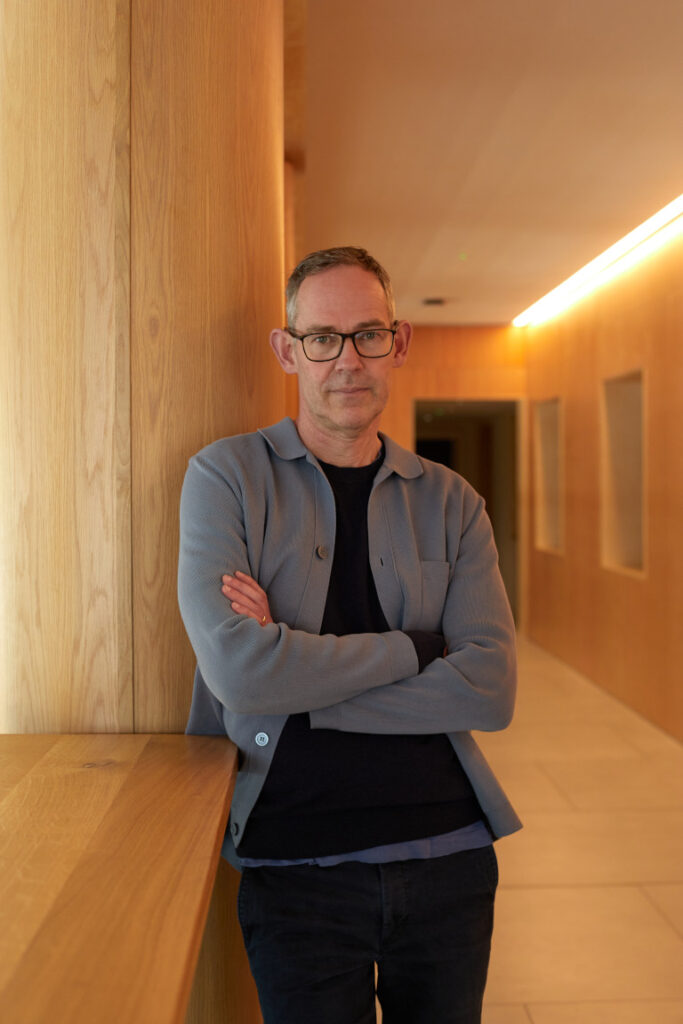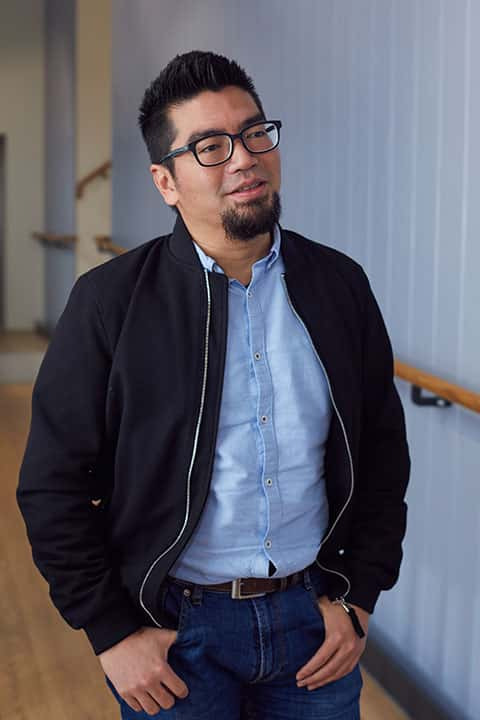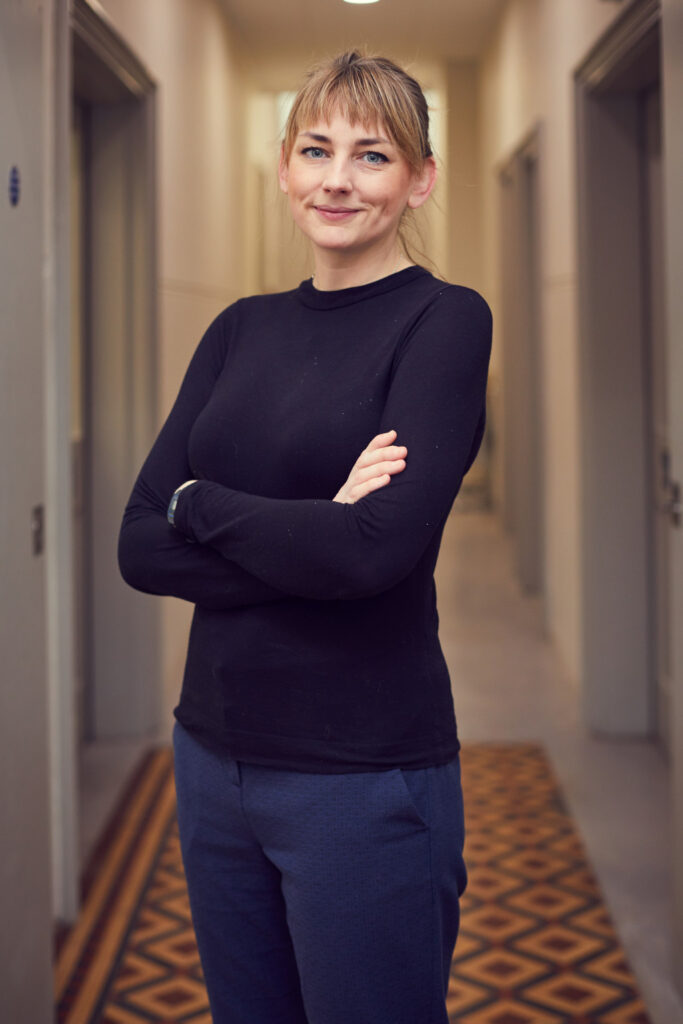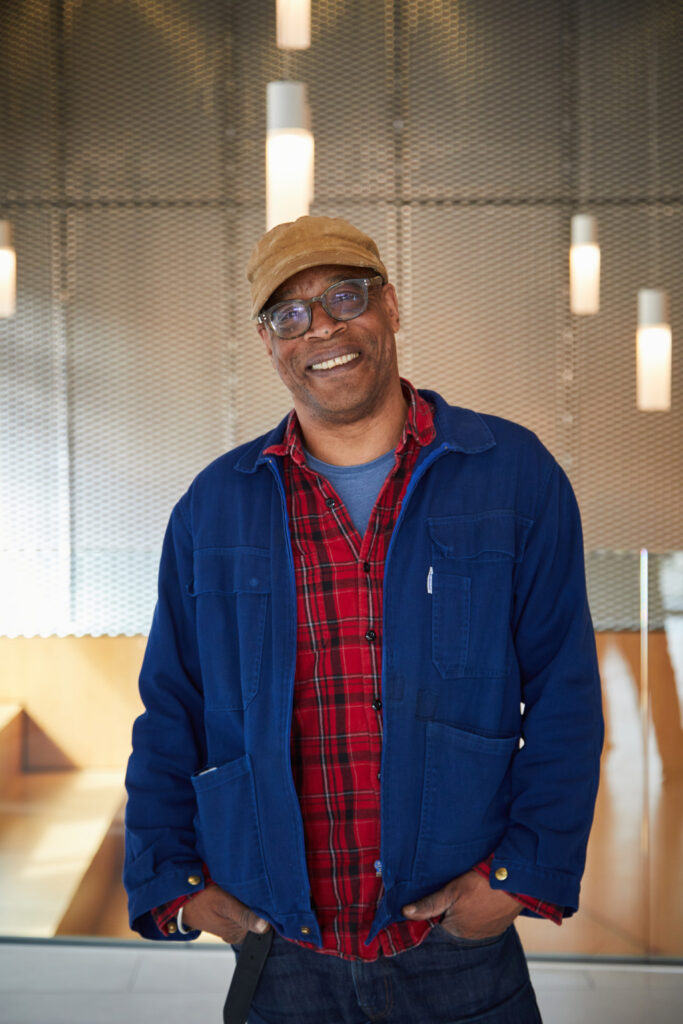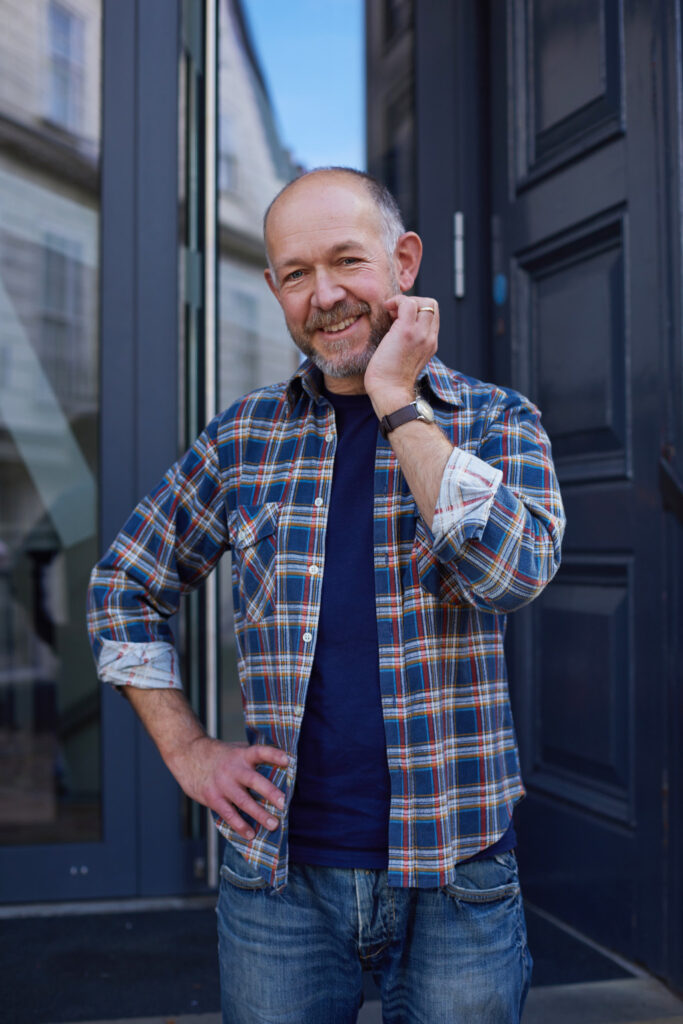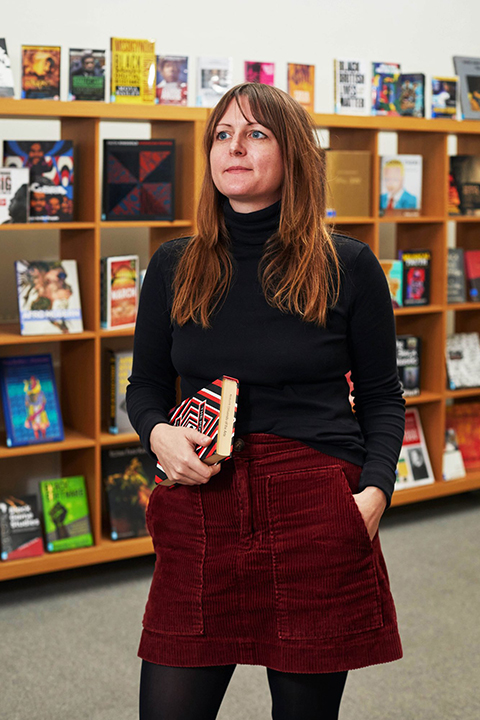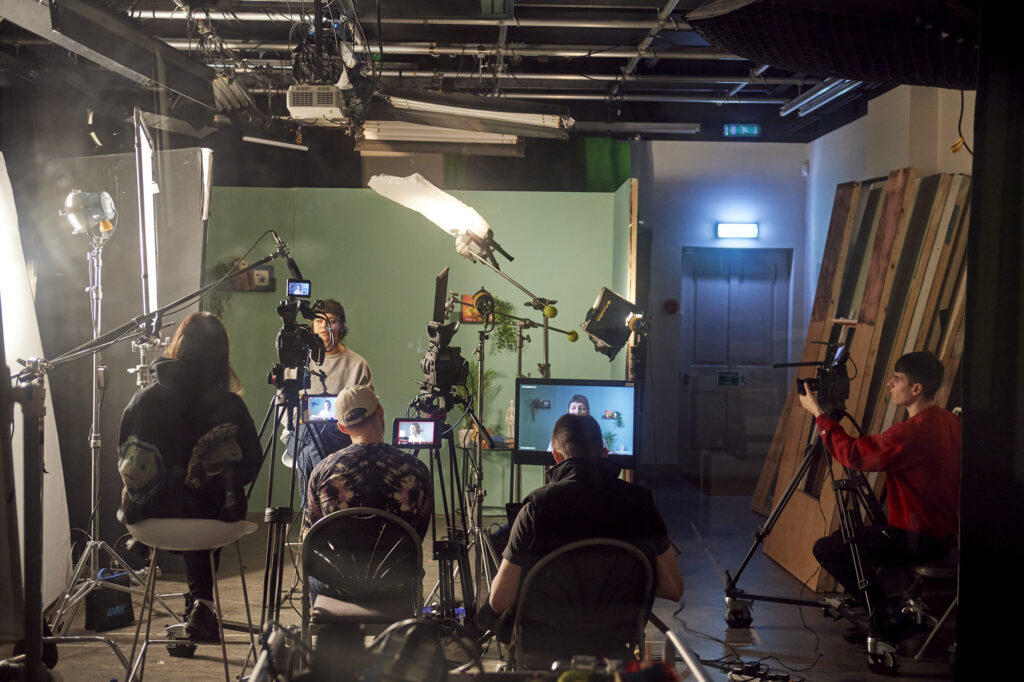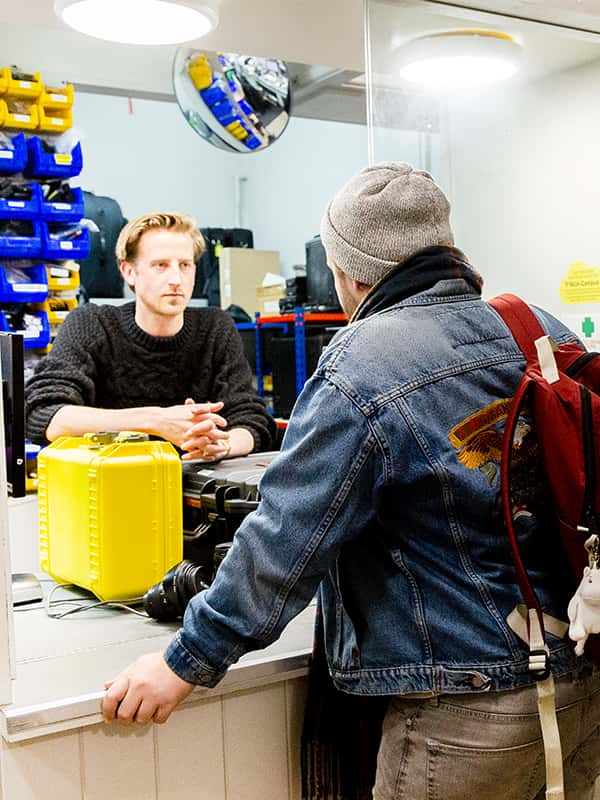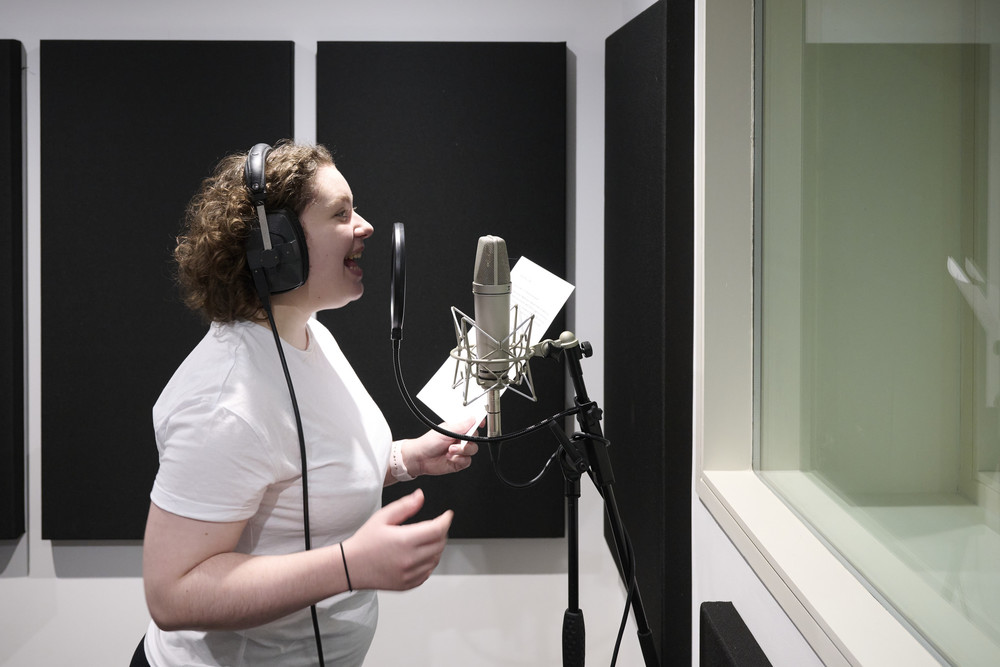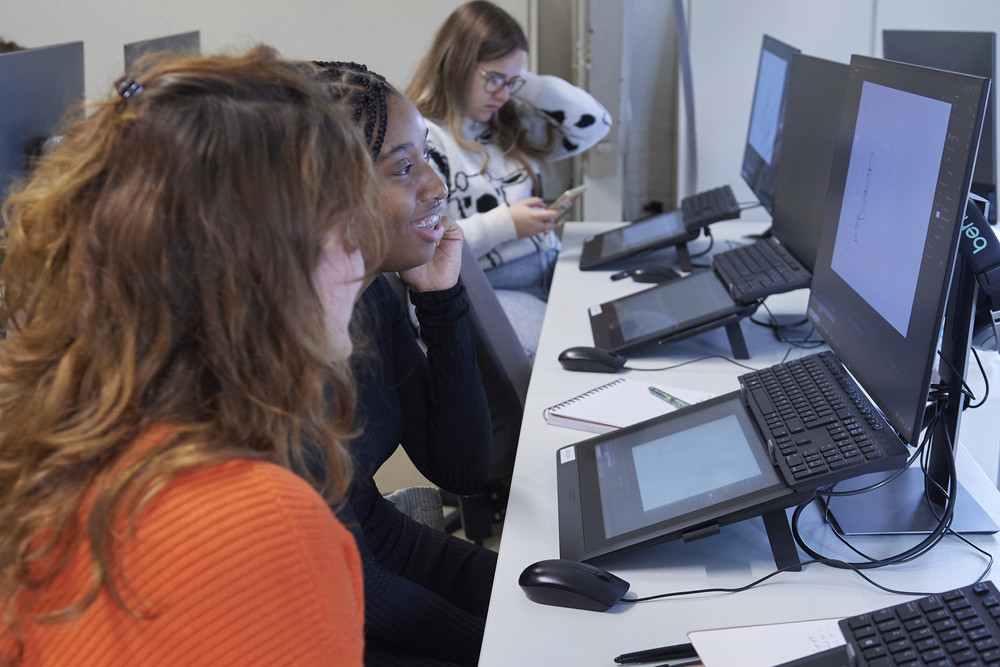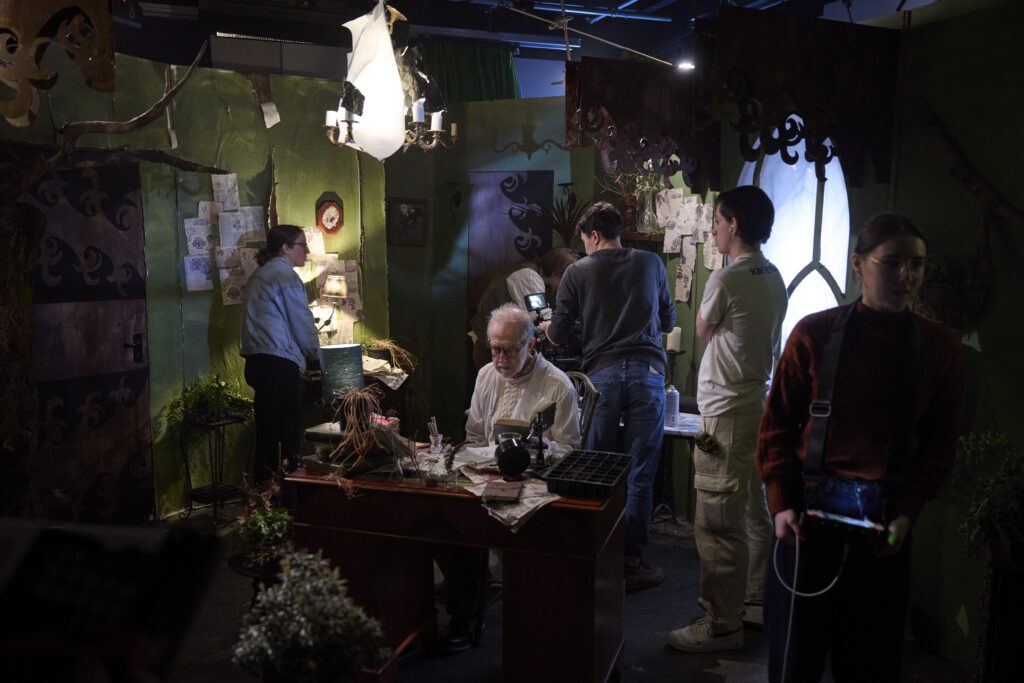

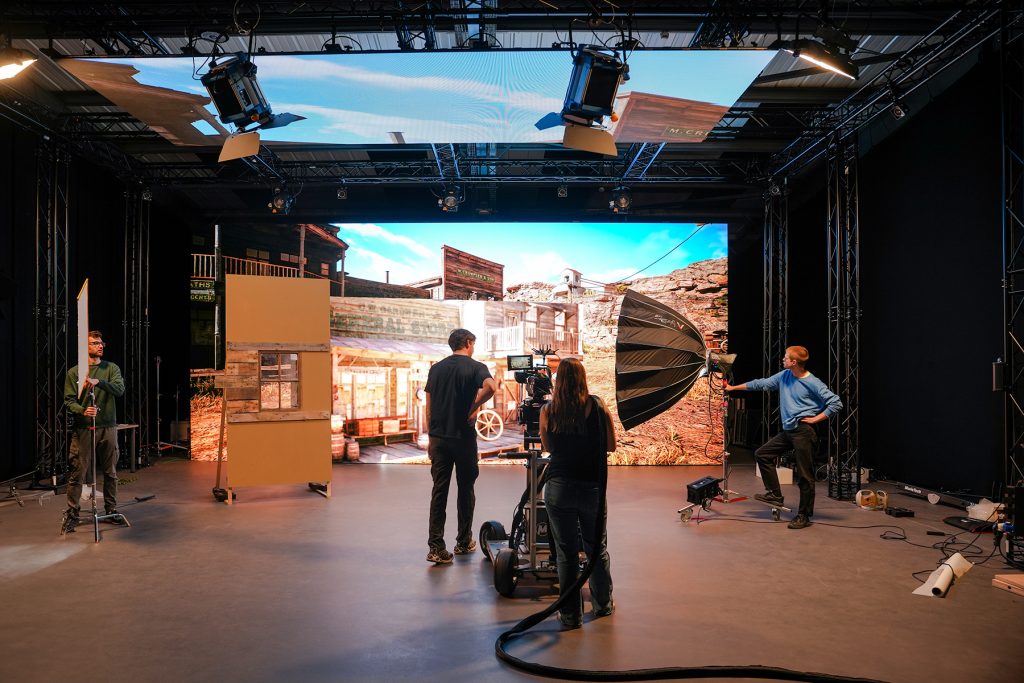
Film and Moving Image Production BA (Hons)
Unleash your artistic vision by combining the art of creative storytelling with practical industry skills across various filmmaking mediums.
-
Course Duration
3 or 4 Year options
-
Course Options
- Diploma Year
- Intergrated Foundation Year
-
Typical Offer
104-120 UCAS Tariff Points
- How to Apply Request a prospectus
-
Annual Fees
- Home (full-time) £9,790
- Overseas (full-time) £18,860
-
UCAS code
- W613 (3 Year), W612 (4 Year)
- Institution code: N39
-
Course Start
September 2026
Creative storytelling and a multi-disciplinary student experience lie at the heart of our BA (Hons) Film and Moving Image Production.
You’ll experiment with various filmmaking mediums and platforms, learning to become a flexible, multi-skilled collaborator with technical and craft skills highly prized by the industry.
You’ll also have the chance to study at our state-of-the-art Virtual Production Studio – a landmark facility that’s home to groundbreaking Sony technology. Here, you’ll be working at the forefront of next-generation filmmaking, with digital sets that can transport actors and audiences to any location imaginable.
Entrepreneurial skills won’t take a back seat. You’ll pitch films to professional visitors and explore film marketing and distribution strategies. You’ll also make full use of the industry networks associated with the course, attending craft workshops with leading writers, directors, producers, production designers, sound designers and cinematographers.
You’ll explore how the production skills you use, and the creative choices you make, can shape and change the story you’re telling. Your focus will be the short film form, including original and adapted drama, documentary, advertising and commercial editorial work.
The final year provides opportunities to write, produce or direct an original short film and submit it for selection for a special industry screening. There’s also the potential for international exposure, through online screenings and Norwich’s Graduate Showcase.
Accreditations
- Loading…
Why study with us
-
Develop your storytelling skills and your critical and creative craft skills such as producing, script development, direction, cinematography, sound design, production design and editing.
-
Learn industry standard approaches to the filmmaking process from development, pre-production, through production to post-production.
-
Collaborate in production teams on a range of practical projects including original and adapted fiction, documentary, experimental film, music/dance video and fashion film.
-
Reflect on the impact of your creative, technical, and practical decision making on your production, its audience and relationship to wider contemporary debates.
-
Gain in-depth knowledge of legal, moral and ethical standards as they impact production including essential training via BAFTA albert in climate science and sustainable production.
Course Details
Integrated Foundation Year (optional)
Integrated Foundation Year
Our Integrated Foundation Year is designed to equip students with the necessary skills, knowledge and confidence to thrive in their chosen degree subject. The course provides a comprehensive introduction to various disciplines, blending critical thinking and creative problem-solving with practical hands-on experience. This year serves as a bridge to undergraduate studies, allowing students to explore their interests within a supportive and inspiring environment, while familiarising themselves with the campus, workshops, and tutors.
Year 1
Core Units
Creative Learning (40 credits)
This unit will focus on developing your knowledge of creative, critical, and collaborative film production, through workshops, lectures, seminars and screenings. In workshops you will be hands-on, developing and experimenting with fundamental creative craft skills in cinematography, sound, and production design, deepening your understanding of these roles as they operate in the film industry. You’ll explore how frames, sequences, sounds and visual design combine to construct location, character, story and meaning. You will develop a deeper understanding of iterative creative processes and how they apply to relevant departments in film production, and debate key contemporary and historical themes as they relate to representation through camera, sound and design. You’ll deepen your awareness of the contexts of producing in a UK and international context, learning about the industry bodies that define the moral, ethical, and health and safety aspects of professional production.
40 credits
Explore and Experiment (80 credits)
In this unit, you’ll explore the techniques and disciplines of screenwriting, directing and editing. You’ll explore industry-standard approaches to filmmaking, from development to pre-production, production, and post-production, as you adapt a short fiction film from a literary source. You will start the journey to being ‘set ready’ as you learn and apply fundamental set etiquette and inter-departmental collaboration to run a professional film set. Collaborating with actors from the BA (Hons) Acting, you will understand what it takes to craft an ensemble performance and how to manage the technical production to capture performance. You will deepen your application of communicative skills to ensure you are able to perform your role within the production pipeline. You will develop an awareness of the key challenges to contemporary film production, including sustainable production and responsible storytelling as you undertake BAFTA Albert Certification. In this unit, you’ll consider the key contexts of film, analysing texts using a broad set of theoretical methods, including semiotics, narratology, feminism, and postmodernism.
80 credits
Core Projects
Wayfinding Week
The first week of each academic year is called Wayfinding week. It’s an opportunity get your bearings, establish new connections and, after your first year at Norwich, re-establish old ones. Your course team will talk you through the year ahead and explain the expectations for the year. We’ll help you navigate new encounters and identify areas to focus on as you progress through your course.
Make it Manifest(o)
An important element of Wayfinding Week is taking part in our annual ‘Make it Manifest(o)’ project. Your course team will introduce the project in which we’ll ask you to consider your hopes and vision of the year ahead at Norwich and work with students in other year groups to bring your ideas to life. The project culminates in a celebratory display of work across the campus. The project will help you to develop your critical creativity through different approaches, concepts, and mediums. You’ll encounter diverse perspectives and build friendships and networks within our university community.
Interchange Week
Interchange weeks are opportunities to step away from your disciplinary studies and engage in projects, workshops, visits and talks that extend your knowledge and understanding of the world. Whether you learn a new skill or take part in a global challenge project with students from other courses, you will come away with new insights to take back to your course. Interchange is part of the schedule for all Norwich students with sessions held across and beyond the campus led by university staff, visiting lecturers and students.
Year 2
Core Units
Global Contexts (80 credits)
In this unit, you’ll build your fundamental knowledge of film craft, undertaking workshops to consolidate your knowledge and creative practice in screenwriting, producing, directing, editing, sound design, cinematography, and production design. You will explore wider cultural, social, political, and global contexts, such as technological development, climate change, gender, race, class, and sexuality. You will develop and produce short-form documentary and original fiction shorts that explore aspects of these global contexts in depth through intermediate storytelling. Learning the ethical responsibilities as a filmmaker will be an integral component of your studies as you explore documentary form and fictional constructions of reality. You will develop your creative concepts through experimentation and iteration, while enhancing your collaborative skills on a series of shorts. You’ll learn how to pitch professional presentations to secure financing and greenlight your projects. Additionally, you’ll gain experience in professional casting, learning to negotiate contracts with agents, writing casting calls, auditioning actors, and consolidating your production knowledge.
80 credits
Collaboration
This unit focuses on understanding your practice in a wider context through interdisciplinary working. You will work on fast-turnaround projects, including commercial film projects and cross-course collaborations. You will pitch your creative projects to external industry clients and peers, undertake workshops on pitching, pitch decks/documents, and attend pitch reviews. You will also engage in a range of workshops to enhance your communication of creative decision-making, covering treatment writing, pitching, budgets, and pre-visualisation. You will develop a research proposal for your final year research report, formulate key questions about your chosen subject, develop a critical methodology and bibliography. and undertake a literature review. In preparation for creative specialism in your final year, you will be supported in writing proposals for specialist study in a specific craft, such as writing/ directing, editing, producing, production design, camera or sound design.
40 credits
Core Projects
Wayfinding Week
The first week of each academic year is called Wayfinding week. It’s an opportunity get your bearings, establish new connections and, after your first year at Norwich, re-establish old ones. Your course team will talk you through the year ahead and explain the expectations for the year. We’ll help you navigate new encounters and identify areas to focus on as you progress through your course.
Make it Manifest(o)
An important element of Wayfinding Week is taking part in our annual ‘Make it Manifest(o)’ project. Your course team will introduce the project in which we’ll ask you to consider your hopes and vision of the year ahead at Norwich and work with students in other year groups to bring your ideas to life. The project culminates in a celebratory display of work across the campus. The project will help you to develop your critical creativity through different approaches, concepts, and mediums. You’ll encounter diverse perspectives and build friendships and networks within our university community.
Interchange Week
Interchange weeks are opportunities to step away from your disciplinary studies and engage in projects, workshops, visits and talks that extend your knowledge and understanding of the world. Whether you learn a new skill or take part in a global challenge project with students from other courses, you will come away with new insights to take back to your course. Interchange is part of the schedule for all Norwich students with sessions held across and beyond the campus led by university staff, visiting lecturers and students.
Diploma Year (optional)
Level 5 Diploma (120 credits)
Students have the opportunity to spend a year after the second of their degree (or the third year if studying for a degree with an Integrated Foundation Year) enhancing their employability options through a Level 5 Diploma. They can choose from courses designed to provide:
- opportunities to gain industry insight, developing employability skills through a series of supported experiences, expanding professional networks and building confidence in the workplace, or
- an introduction to creative computing, building an understanding of how coding skills can be used to advance and complement creative practice.
Final Year
Core Units
Research and Preparation (40 credits)
This is the first and shorter of the two units that make up your final year of study. This year will also allow you to extend your knowledge and understanding of a specific area of the degree encountered earlier in your studies. Your specialism lectures and practical workshops will explore processes for planning and delivering creative work tailored to the outcomes of your craft project briefs, enabling you to explore specific materials, processes and relevant technologies in detail. You will consolidate and extend your ‘set-readiness’ by taking part in a series of large crew production workshops. Working from your research report proposal, you will enhance your critical thinking through research, analysis, and critical writing of an in-depth research report in an area of film production, technology, industry, culture or audience that reflects your interests. At the end of the unit, you will submit a final project proposal that outlines a detailed plan for your specialist creative practice in the final unit of study.
40 credits
Resolution and Career Development (80 credits)
Your final unit allows you to resolve your creative practice, working from the project proposal developed in the previous unit. You’ll be immersed in film production that reflects professional industry processes, contexts, and cultures. Working in various production teams, you will apply your craft and specialist knowledge as a Head of Department, and in supporting roles, to produce and post-produce the full slate of short films. You will develop confidence in self-managing your learning and creative decision-making while working in specialised production roles. This unit prepares you for a career after graduation, with support to develop a five-year employability plan, including seeking industry placements, internships, mentors, and employment, and building your final film for festival submission. At the end of the year, you will play an active role in planning, producing, and executing a two-day film festival to showcase your year group’s work, engaging in event management, curation, programming, technical delivery, branding, and promotion for the specialist creative industry and public audiences.
80 credits
Core Projects
Wayfinding Week
The first week of each academic year is called Wayfinding week. It’s an opportunity get your bearings, establish new connections and, after your first year at Norwich, re-establish old ones. Your course team will talk you through the year ahead and explain the expectations for the year. We’ll help you navigate new encounters and identify areas to focus on as you progress through your course.
Make it Manifest(o)
An important element of Wayfinding Week is taking part in our annual ‘Make it Manifest(o)’ project. Your course team will introduce the project in which we’ll ask you to consider your hopes and vision of the year ahead at Norwich and work with students in other year groups to bring your ideas to life. The project culminates in a celebratory display of work across the campus. The project will help you to develop your critical creativity through different approaches, concepts, and mediums. You’ll encounter diverse perspectives and build friendships and networks within our university community.
Interchange Week
Interchange weeks are opportunities to step away from your disciplinary studies and engage in projects, workshops, visits and talks that extend your knowledge and understanding of the world. Whether you learn a new skill or take part in a global challenge project with students from other courses, you will come away with new insights to take back to your course. Interchange is part of the schedule for all Norwich students with sessions held across and beyond the campus led by university staff, visiting lecturers and students.
Download course specifications
Learning and teaching
This course is taught through a mixture of learning and teaching methods including:
-
Group briefings
-
Academic tutorials
-
Group tutorials
-
Workshops
-
Critiques (crits)
-
Seminars
-
Lectures
Assessment
Assessment for this course is entirely coursework-based, meaning there are no exams. Your progress will be evaluated through the projects and assignments you complete for each unit. Throughout the year, you’ll receive ongoing feedback to help you refine your work and develop your skills. To support your learning and ensure you achieve the course outcomes, we use a variety of assessment methods, including:
- Finished pieces of work
- Presentations
- Written work
- Your research
- A reflective journal
Some of the people you’ll be working with
Our Facilities
Look around our city-centre campus, and you will find studios, media labs, and creative spaces in 13 buildings that sit among the cafés, bars, independent galleries and shops of Norwich’s cultural quarter.
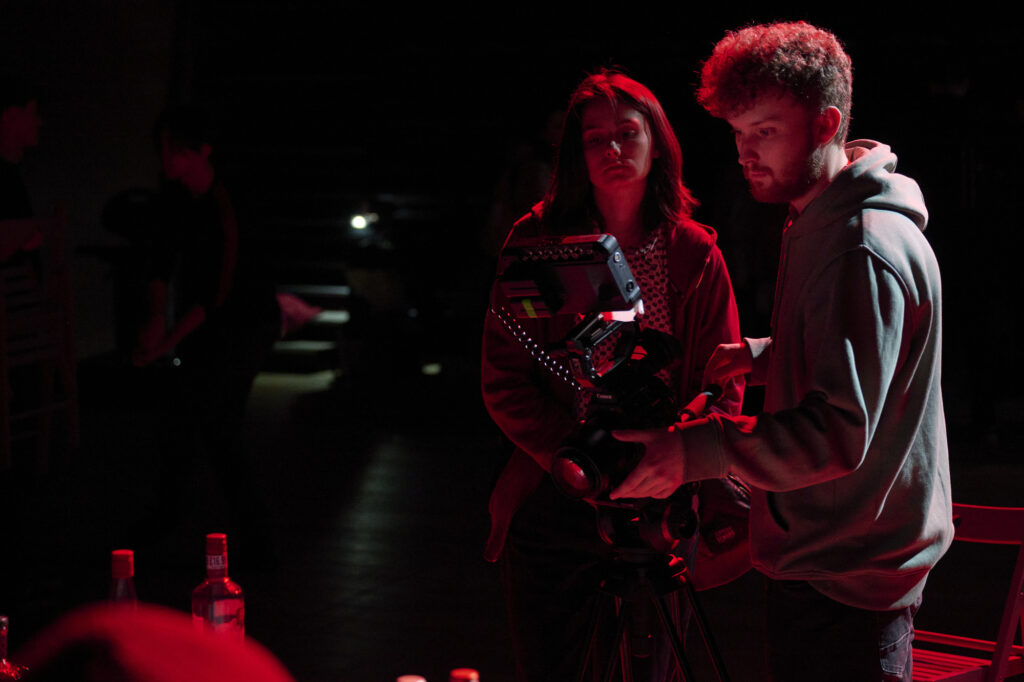
Typical career paths
The final year provides opportunities to specialise and develop a portfolio of professional level film practice across a range of crafts. This might include writing, directing, producing, editing, cinematography, sound design and production design. You’ll also develop an in-depth knowledge as working as a head of department and a range of supporting roles in each department.
Our graduates’ work has won film festival awards in London, LA and Tokyo. Their films have been recognised through Royal Television Society Awards and BAFTA Crew.
Alumni have roles across the industry, released feature films in cinemas worldwide and have had films premiering at Berlin Film Festival and Sundance Film Festival.
- Director
- Producer
- Director of photography
- Editor
- Sound designer
- Assistant director
- Camera operator
- Location manager
- Art director
- Production designer
- Screenwriter
- Script supervisor
“92% of our graduates are in employment or further education within six months of graduating”
Graduate Outcomes 2021
Entry requirements
Home
Norwich University of the Arts welcomes applicants of all ages from all backgrounds.
If the qualification that you are studying is not shown, do not worry as we are able to accept other pre-entry qualifications as well as combinations of different qualifications.
Please do contact our Student Recruitment Team if you have any queries.
A/AS Levels (GCE)
GCE A/AS Levels 3 A-level qualifications at grades BCC (104 UCAS Tariff points) or above. Where candidates are not taking 3 A-levels, Norwich University of the Arts will consider combinations of A-level/AS-level and other Level 3 qualifications.
BTEC Extended Diploma (QCF or RQF)
Distinction, Merit, Merit in an art, design or media related subject
BTEC Diploma (QCF or RQF)
Distinction*, Distinction* in an art, design or media related subject
T Levels
A T Level in any subject with overall grade A* to C (Pass)
UAL Extended Diploma
Merit
UAL Level 3 Foundation Diploma in Art and Design
Pass
UAL Level 4 Foundation Diploma in Art and Design
Pass
Foundation Diploma in Art and Design
Pass
Access to Higher Education Diploma (Art and Design)
Pass
International Baccalaureate Diploma
A minimum of 26 points
Integrated foundation year (optional)
Norwich University of the Arts welcomes applicants of all ages from all backgrounds.
If the qualification that you are studying is not shown, do not worry as we are able to accept other pre-entry qualifications as well as combinations of different qualifications.
Please do contact our Student Recruitment Team if you have any queries.
A/AS Levels (GCE)
GCE A/AS Levels 2 A-level qualifications at grades CC (64 UCAS Tariff points) or above.
BTEC Extended Diploma (QCF or RQF)
Merit, Merit, Pass in an art, design or media related subject
BTEC Diploma (QCF or RQF)
Distinction*, Merit in an art, design or media related subject
T Levels
Pass (D or E on the core)
UAL Extended Diploma
Pass
UAL Level 3 Foundation Diploma in Art and Design
Pass
UAL Level 4 Foundation Diploma in Art and Design
Pass
Foundation Diploma in Art and Design
Pass
International Baccalaureate Diploma
A minimum of 26 points
Overseas
We accept qualifications from all over the world.
To find our entry requirements from a specific country, please check our dedicated international pages.
English language qualifications
Most international students are required to hold an English language qualification. Applicants are required to have a minimum UKVI approved IELTS exam score of 6.0 overall, with a minimum of 5.5 in each section. Equivalent English language qualifications are acceptable such as, IB English language syllabus A or B/English Literature (Grade 4).
We also accept some alternative English qualifications. Learn more about our English entry requirements.
You can email us on international@norwichuni.ac.uk if you’d like to discuss your application individually.
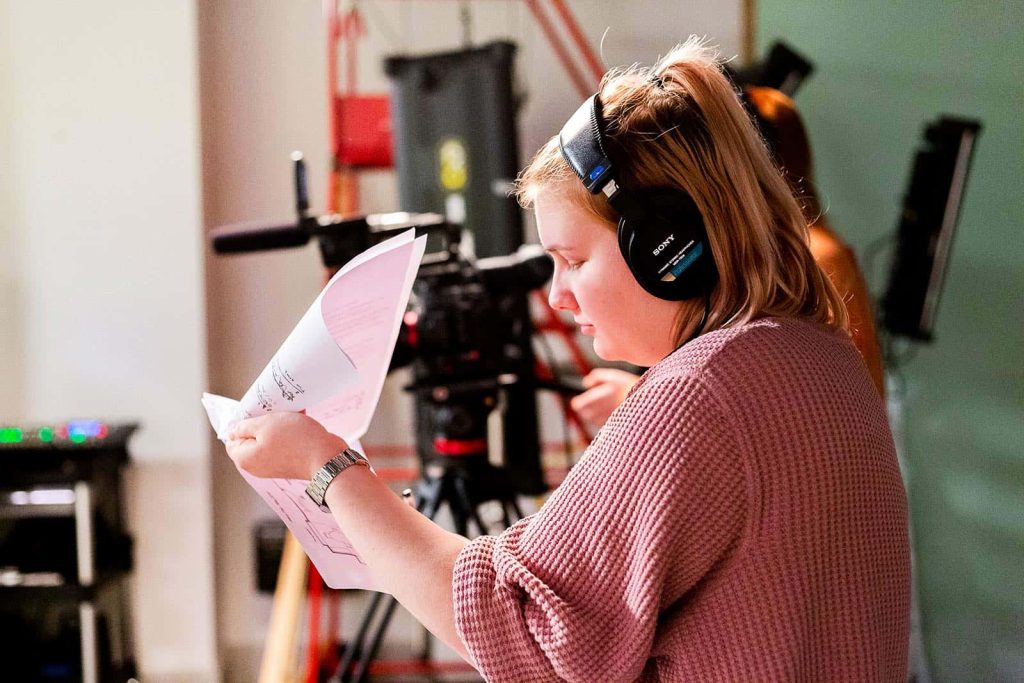
Fees and funding
Home
Tuition fees for the 2026/27 academic year
- BA course (three year): £9,790 per year
- Integrated Foundation Year (optional): £9,790 per year
- Level 5 Diploma Year (optional): £9,790 year
The level of fee that you will be asked to pay depends on whether you’re classed as a UK (home) or international student. Check your fee status.
Fees for subsequent years
Tuition fees may increase in subsequent years in line with inflation, subject to government regulations. The inflation rate used is expected to be the Retail Price Index excluding mortgage payments (RPIX). We would confirm this in advance to you of each academic year.
Find our more about fees and funding
Funding your study
Depending on your circumstances, you may qualify for a bursary, scholarship or loan to help fund your study and enhance your learning experience.
International
Tuition fees for the 2026/27 academic year
- BA course (three year): £18,860
- Integrated Foundation Year (optional): £18,860
- level 5 Diploma year (optional): £18,860
The level of fee that you will be asked to pay depends on whether you’re classed as a UK (home) or international student. Check your fee status.
Fees for subsequent years
For Overseas students starting in 2026 inflation will be applied to your fees in later years. We will confirm this in advance to you of each academic year, and we will limit the increase to no more than the Office for Students’ recommended inflationary measure.
Find our more about fees and funding
Funding your study
Please take a look at our International students page for information about fees, scholarships for international students, visas and much more.
Additional costs
Your course fees cover the cost of studies, and include loads of benefits, such as the use of our library, support from our expert employability team, access to workshops and free use of the IT equipment across our campuses. There are also other costs which you may need to consider.
How to apply
Home
All applications for undergraduate courses will need to be made via the Universities and Colleges Admissions Service (UCAS).
You’ll need our university UCAS code (N39) as well as your course code which you’ll find on your course page.
When you register with UCAS you will need include your previous and current qualifications information, personal statement, and reference.
Once we receive your application form through UCAS, we will email confirmation that we have received it and will give you access and instructions for logging into the applicant portal. Our decision will be communicated via UCAS.
Applying for an undergraduate degreeInternational
Full-time Undergraduate International applicants can either apply via UCAS or directly by completing the online application form below or emailing the downloadable form to ioadmissions@norwichuni.ac.uk
Online Application Form (opens in a new window)For further support for international applicants applying for an undergraduate degree view our international pages.
-
1 / 1
Tanicha Toro-Oloto
Film and Moving Image Production BA (Hons)

Latest news
-
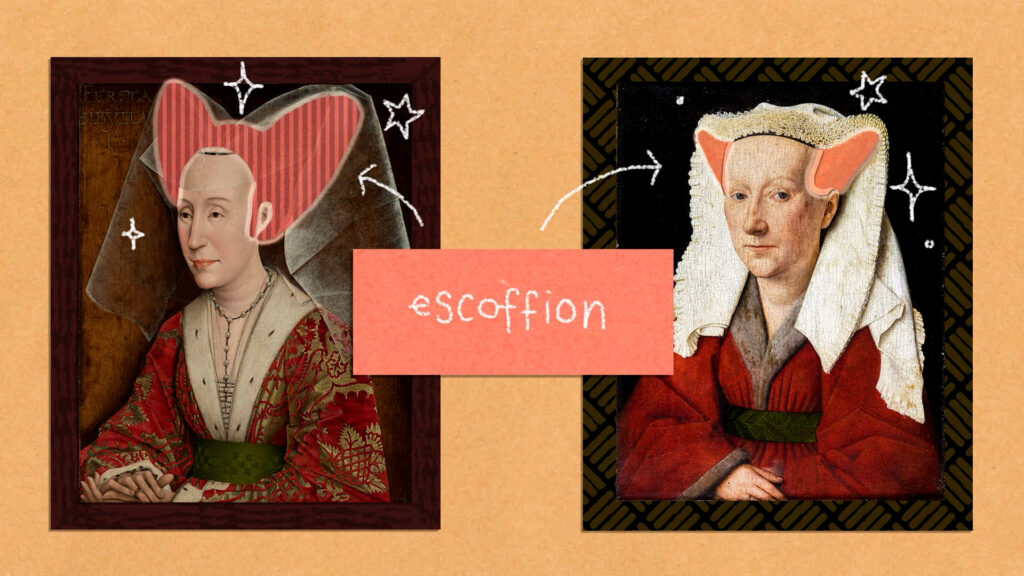 Institution •
Institution •Director of Research Development collaborates with TED-Ed on new animation
Professor Alison Goodrum worked with the TED-Ed team to develop the short film which explores the history of hats. -
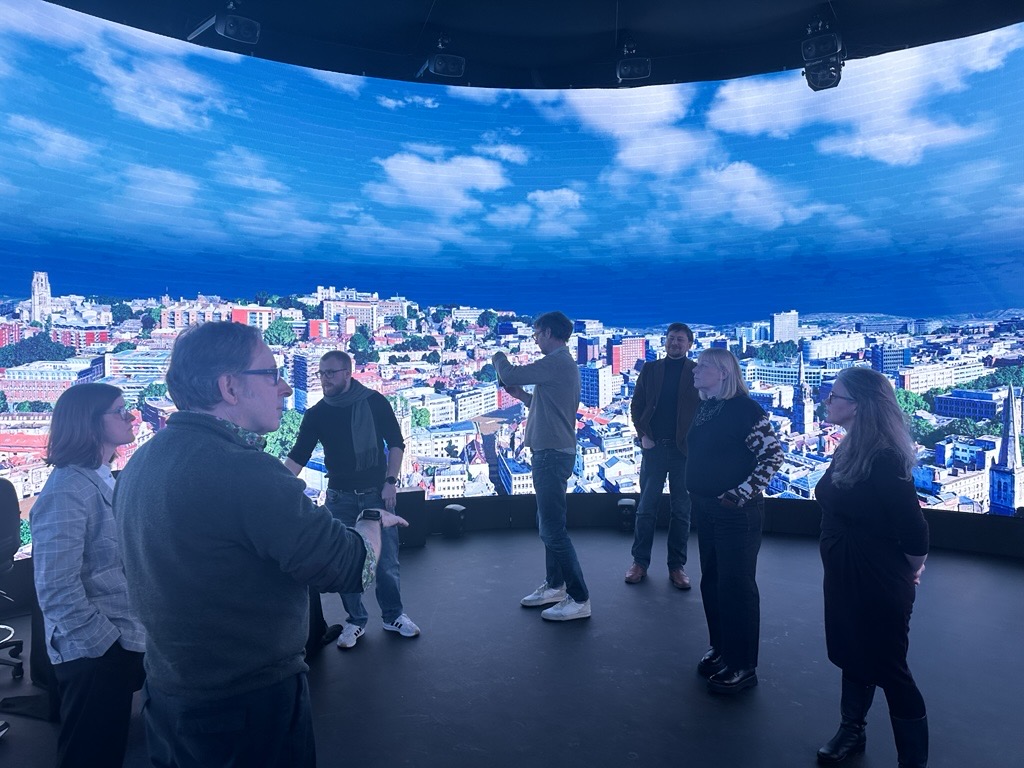 Institution •
Institution •Norwich University of the Arts showcases institutional and research achievements to Research England
The University was delighted to welcome representatives from Research England, to share key institutional and research developments. -
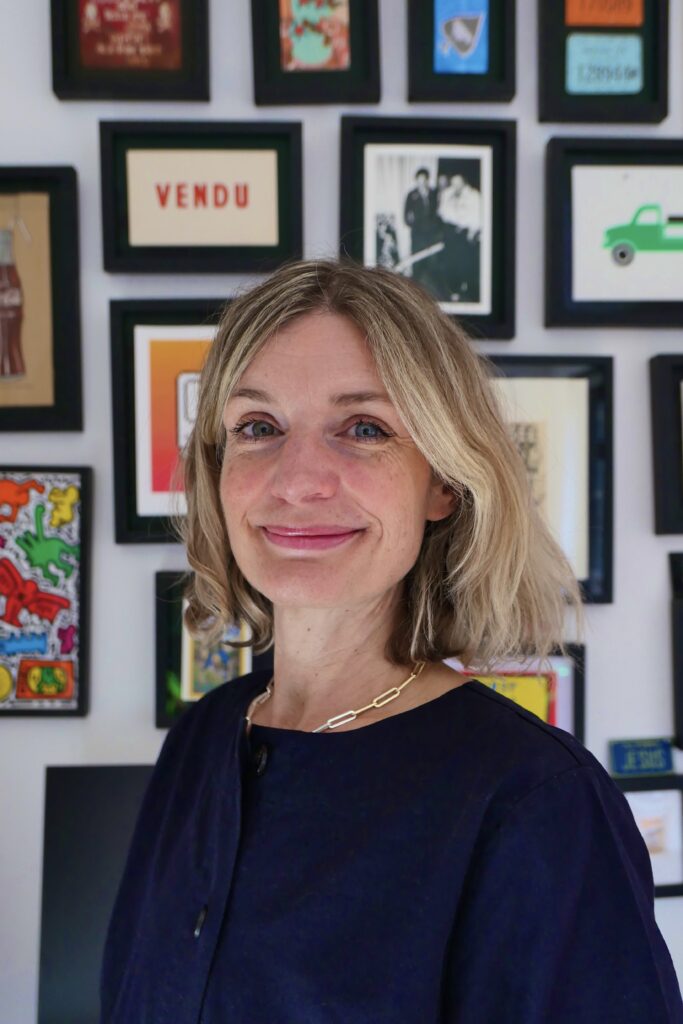 Institution •
Institution •Norwich appoints new Deputy Vice-Chancellor
Norwich University of the Arts is pleased to announce the appointment of Rebecca Wright as its new Deputy Vice-Chancellor. -
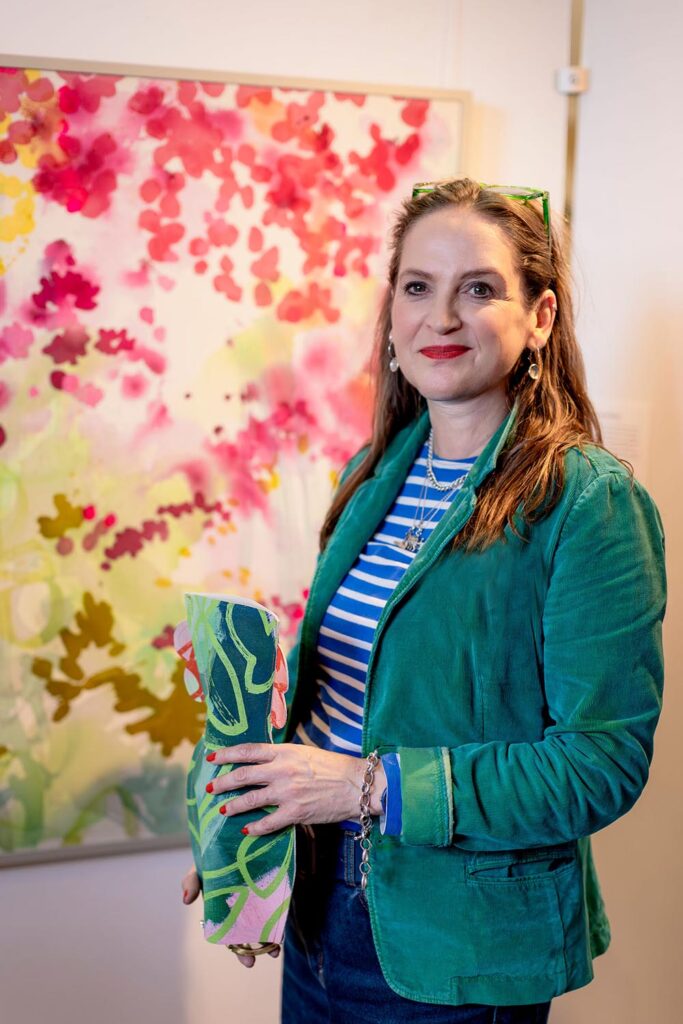 BA Textile Design •
BA Textile Design •In conversation with: Lucy Perry, MA Textile Design
Lucy shares her experience of creating a 360° digital installation, in a collaborative exploration of nature and technology. -
 Institution •
Institution •Norwich University of the Arts earns prestigious 5-star QS Star Excellence rating fo Teaching
Norwich University of the Arts has been awarded an overall four-star rating in the prestigious QS Stars University Ratings, marking a significant milestone in the University’s first-ever submission to the internationally recognised assessment framework. -
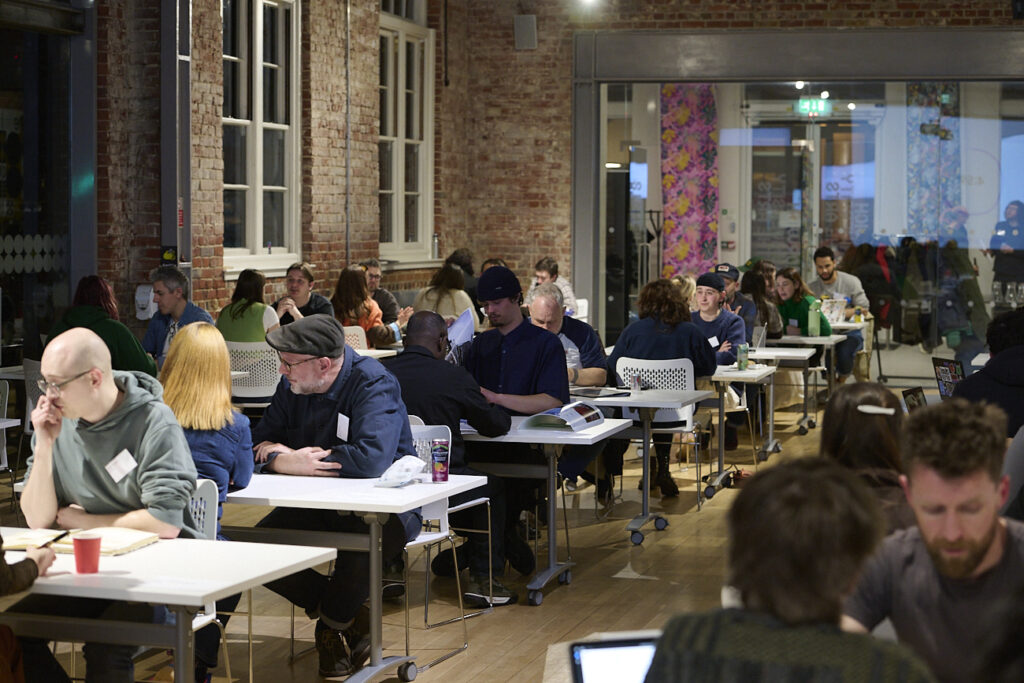 Employability •
Employability •Norwich University of the Arts celebrates 10 years of the Big Book Crit
Hundreds of Norwich students have shared their work with leading creative professionals over the last decade. -
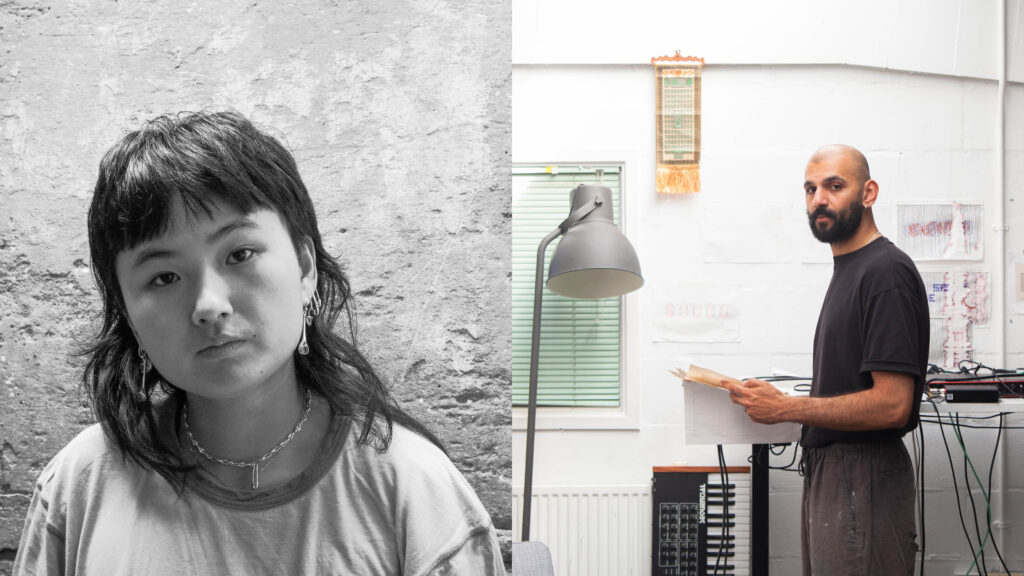 East Gallery •
East Gallery •Announcing the East Gallery Fellows 2025-2026
Norwich University of the Arts is pleased to announce the selected awardees of this year's East Gallery Fellowship. -
 BA Business Management •
BA Business Management •Dean of Creative Education Awarded Prestigious Principal Fellowship from Advance HE
The University is delighted to announce that Hilary Carlisle, Dean of Creative Education and Professor of Design, has been awarded Principal Fellowship of the Higher Education Academy (PFHEA) by Advance HE -
 BA Degree •
BA Degree •Norwich University of the Arts to Host ELIA Academy 2027
Norwich University of the Arts is delighted to announce that it has been selected as the host institution for the ELIA Academy 2027. -
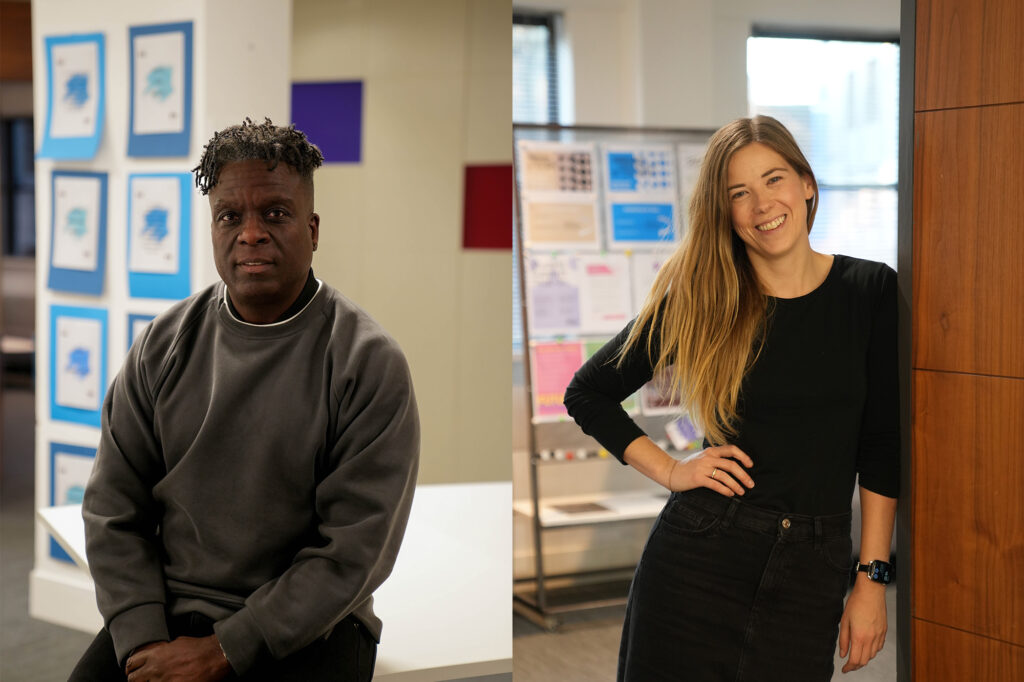 BA Business Management •
BA Business Management •In conversation with Norwich’s newest lecturers in Marketing and Business Management
We joined Norwich's newest lecturers, Stephen Balmer-Walters and Laurie McAllister, to find out more about the University's Marketing and Business Management courses. -
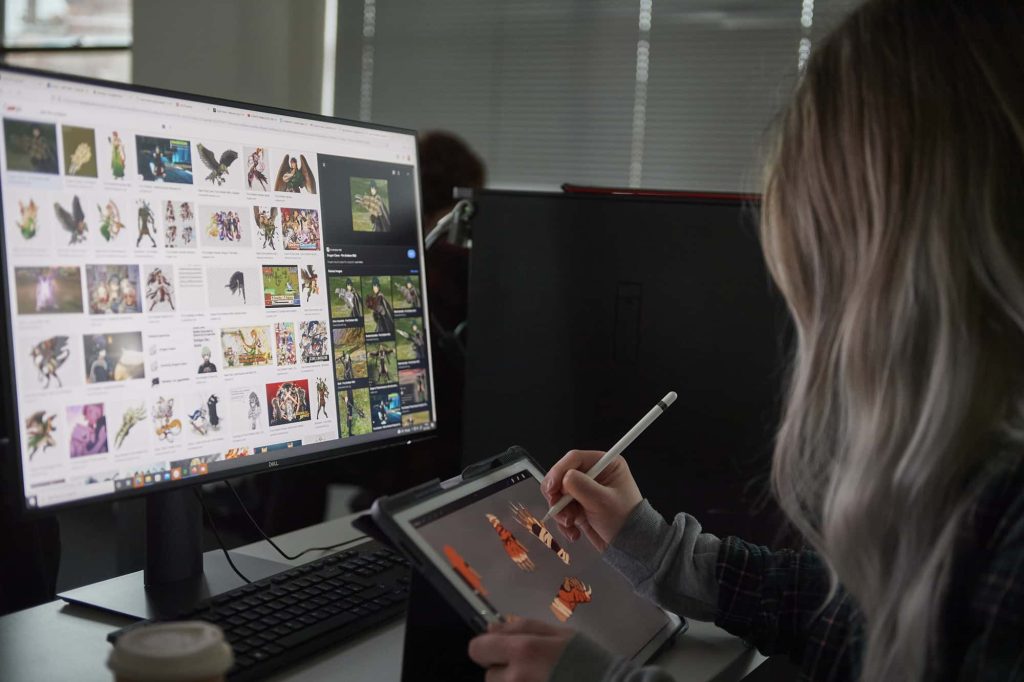 BA Games Art and Design •
BA Games Art and Design •East of England set to become UK’s next Games Cluster, says landmark report
A major new report is calling for the creation of a Games Cluster for the East of England — positioning the region as a national leader in creative technology and immersive media. -
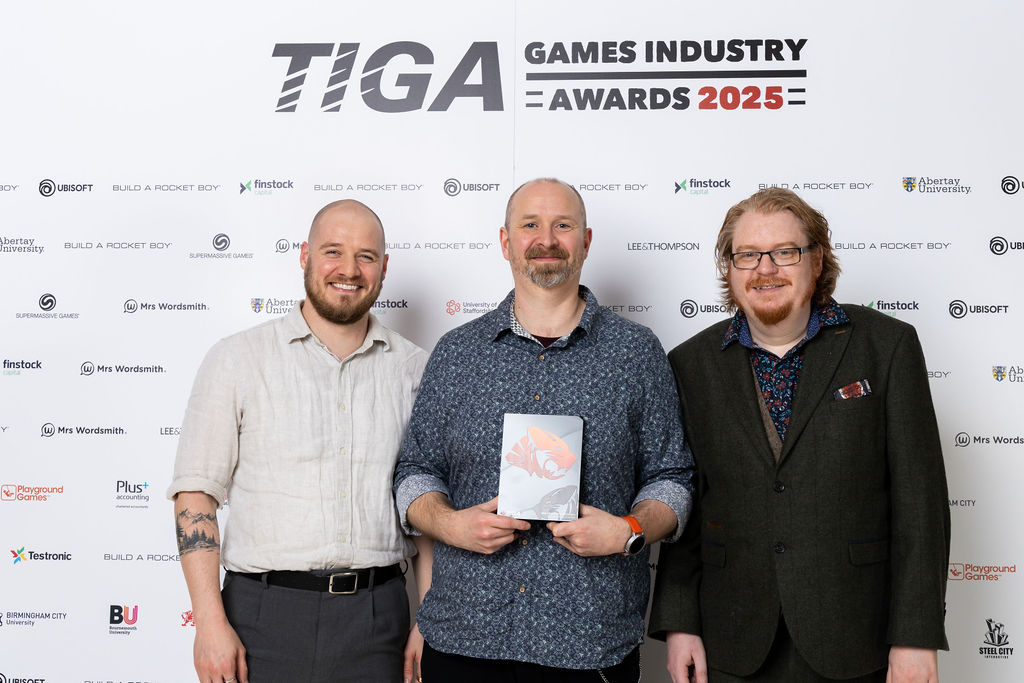 BA Games Art and Design •
BA Games Art and Design •Norwich awarded Best Education Initiative at the TIGA UK Games Industry Awards
TIGA, who represent the UK video games industry, have recognised the University’s commitment to graduate success and industry-focused learning in their 2025 awards. -
 BA Animation •
BA Animation •Cutting edge Sony Virtual Production Studio puts Norwich on the map for the future of film and gaming
Norwich University of the Arts and Sony open new landmark facility for students, creators and the community. -
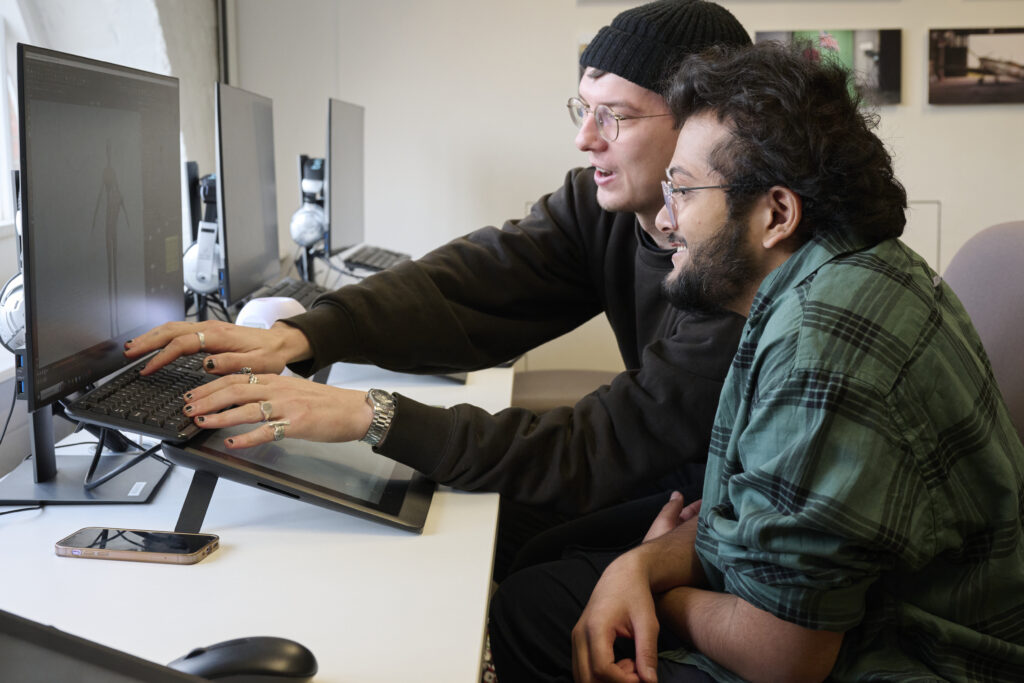 BA Animation •
BA Animation •Norwich named top UK university for production excellence in visual effects
The University has been placed in three categories in the 2025 Rookies Global School Rankings, including the top five for Production Excellence – Visual Effects. -
 BA Photography •
BA Photography •Entries open for Norwich's 2026 Beyond the Frame photography competition
Entries are now open for our annual photography competition, open to students aged 11 to 19 around the world. -
 BSc Degree •
BSc Degree •Norwich University welcomes new academics to its Psychology and Computer Science courses
Lyndsey Wallace joins the University as Senior Lecturer for BSc (Hons) Psychology, with Jawwad Chattha joining as Course Leader for BSc (Hons) Computer Science.
1 / 1Related courses
Discover our courses and take the first step towards unleashing your potential
-
Visit the Fine Art BA (Hons) course page

- Filter courses by study level: Undergraduate
- Filter courses by duration: Full time
- Filter courses by start month: September
- Filter courses by subject: Fine Art
Fine Art BA (Hons)
Want to explore your creativity, ideas, and instincts in a vibrant community of artists, thinkers and makers? And shape the future of contemporary art?
-
Visit the Animation and Visual Effects BA (Hons) course page

- Filter courses by study level: Undergraduate
- Filter courses by duration: Full time
- Filter courses by start month: September
- Filter courses by subject: Animation and Visual Effects
Animation and Visual Effects BA (Hons)
Wield the creative and technical skills behind the latest Hollywood movies, with teaching from the award-winning studio professionals on Norwich’s BA (Hons) Animation and Visual Effects (VFX) degree course
norwichuni_film
-
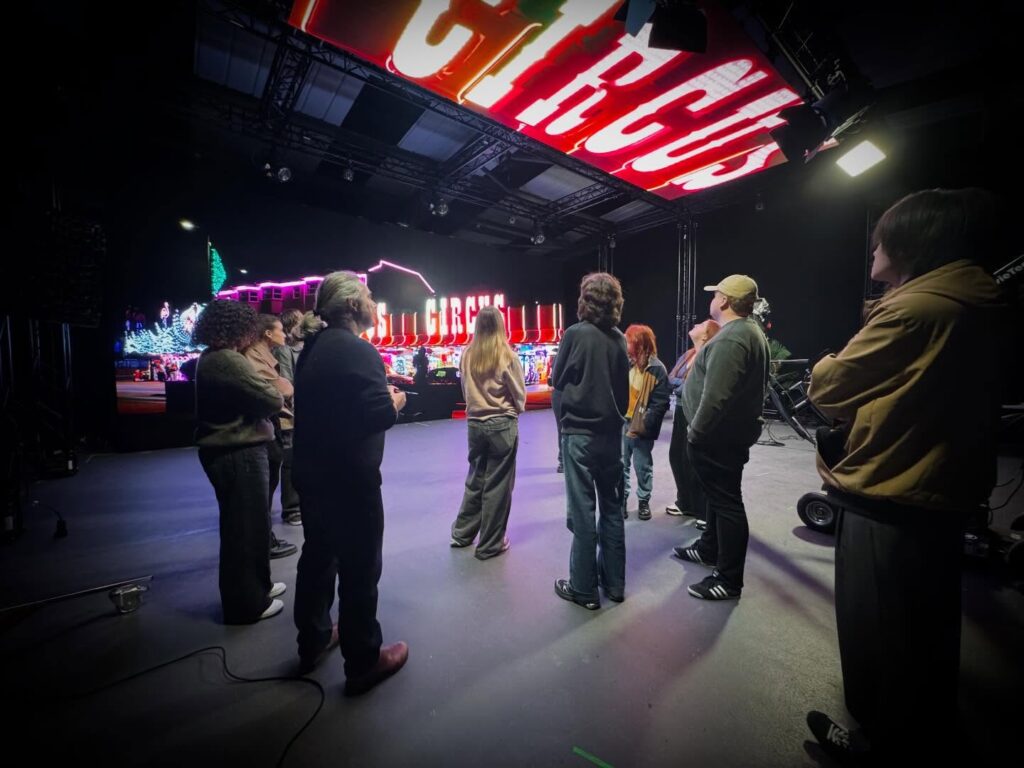
norwichuni_film A great day introducing our year 1 @norwichuni_film students to virtual production techniques in our amazing VP studio at Havers Road . The very beginning of a journey in contemporary film production technology : technique (opens in a new window)
-

norwichuni_film Out @norwichuni_film staff and students have been busy learning together in the new virtual production studio , built in collaboration with Sony. Over the last 8 weeks our film students have been in the studio learning about the tech and how it impacts traditional production roles . Look out for many more images over the next few weeks (opens in a new window)
-

norwichuni_film It’s been so hard not to shout about this but now it’s official ! Welcome to our state of the art virtual production studio here at @norwichuniarts . We officially launched the studio today, with national press and industry guests . We’ve been teaching in Virtual Production since September and it is such an incredible learning experience for our film production students to work at the cutting edge of industry / research . Keep an eye out for examples of student work from the last few weeks and over the next year !! (opens in a new window)
-

norwichuni_film Loving this sneak peak at the collaborative work between our year 3 production design and cinematography students in the studio this week. Taking classic monster movies and Greek mythology as inspiration ! (opens in a new window)
-
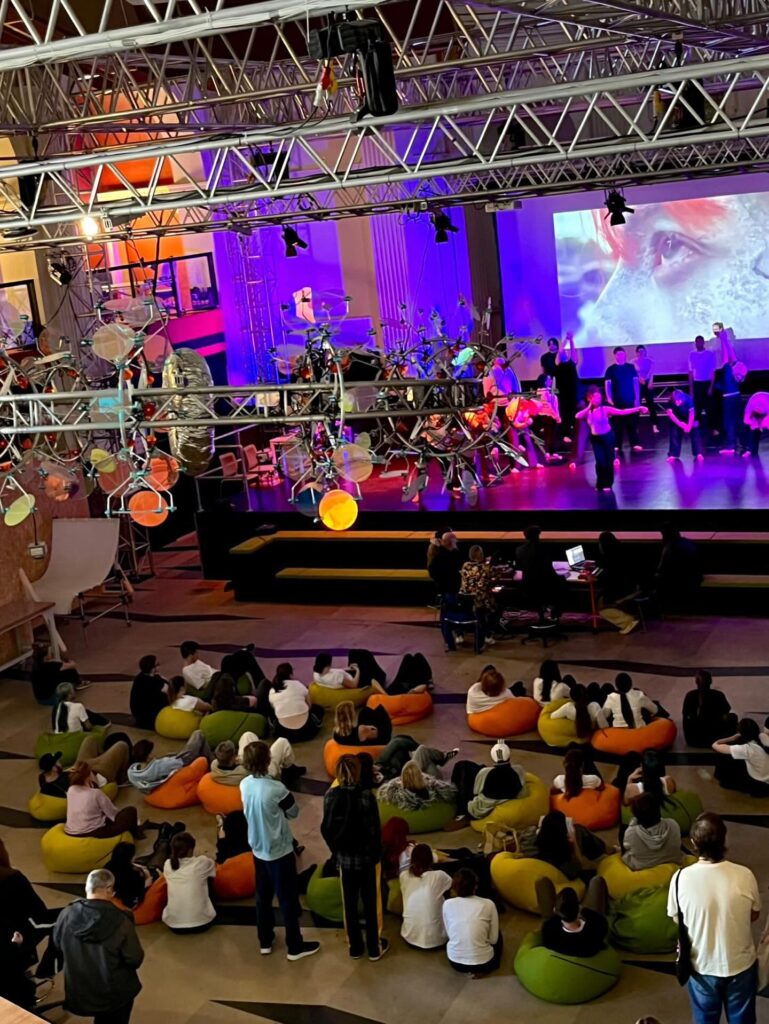
norwichuni_film What an amazing end to the first two weeks with our new year 1 @norwichuni_film students. Still from our collaborative performances ‘Dreams of the Wasteland’, with movement from @norwichuni_acting , projected image from @norwichuni_film and original sound/ music from @norwichuni_electronicmusic . A fantastic start to the year for Film and Performing Arts @norwichuniarts Photo- @craig_tech 🎉 (opens in a new window)
-
norwichuni_film Kicking off the MA Film showcase , class of 2025. Introduction by @rotersufilm (opens in a new window)
-
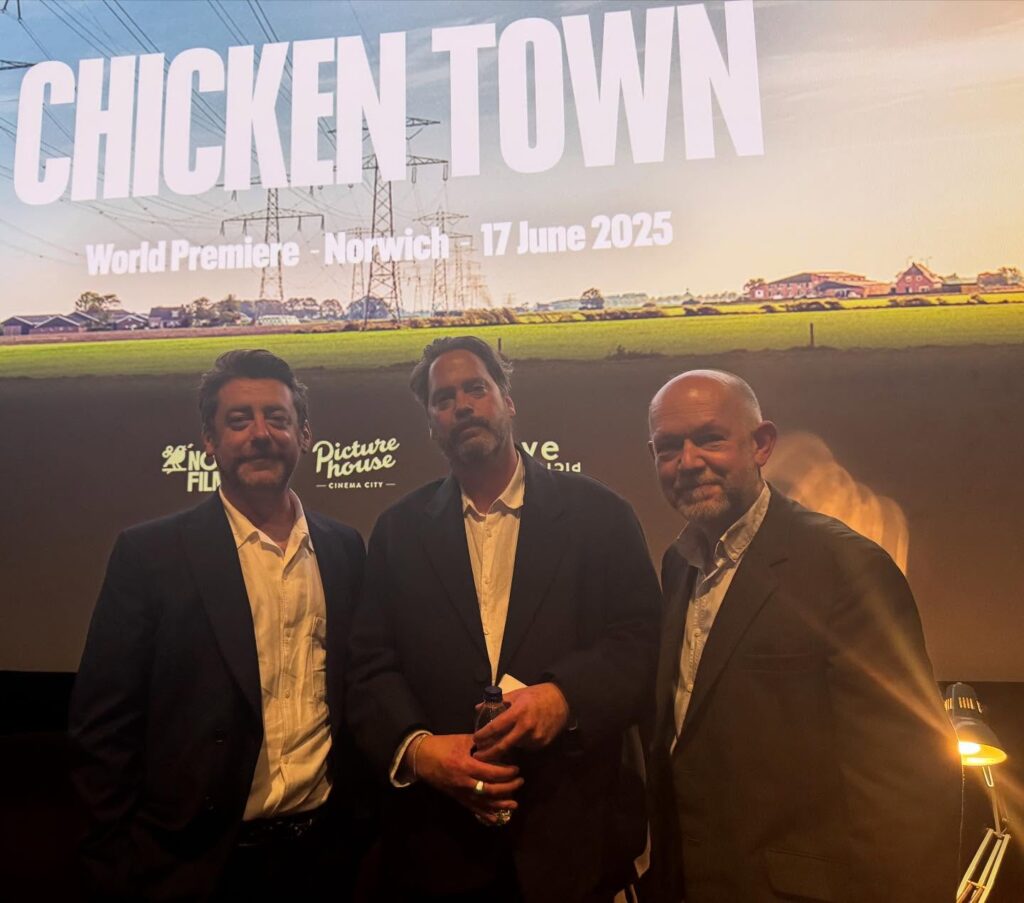
norwichuni_film Great to be there for the world premiere of Chicken Town, written and directed by Norwich Uni Film lecturer @richardbracewell . On general release from 27th June ! (opens in a new window)
-
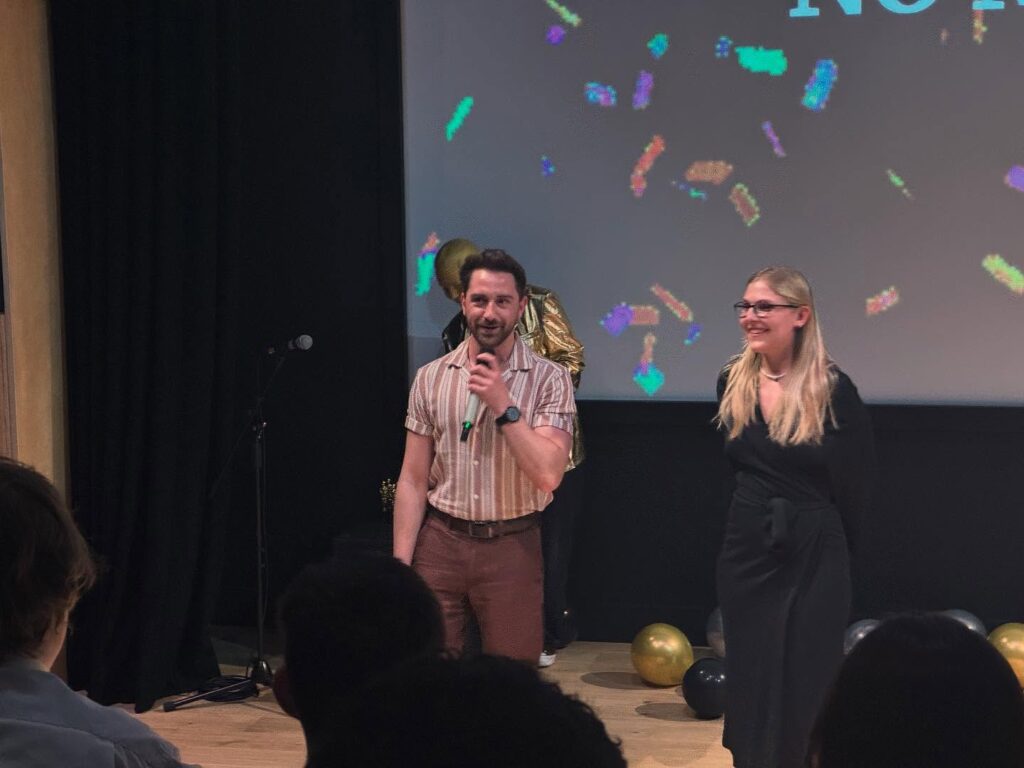
norwichuni_film Lots of fun at the Film Awards this afternoon. A wonderful and slightly tongue in cheek end of our 3 days of screenings . Where else can you be presented fake Oscars by a sound designer dressed up as an Oscar #norwichfilm #fmip (opens in a new window)
-
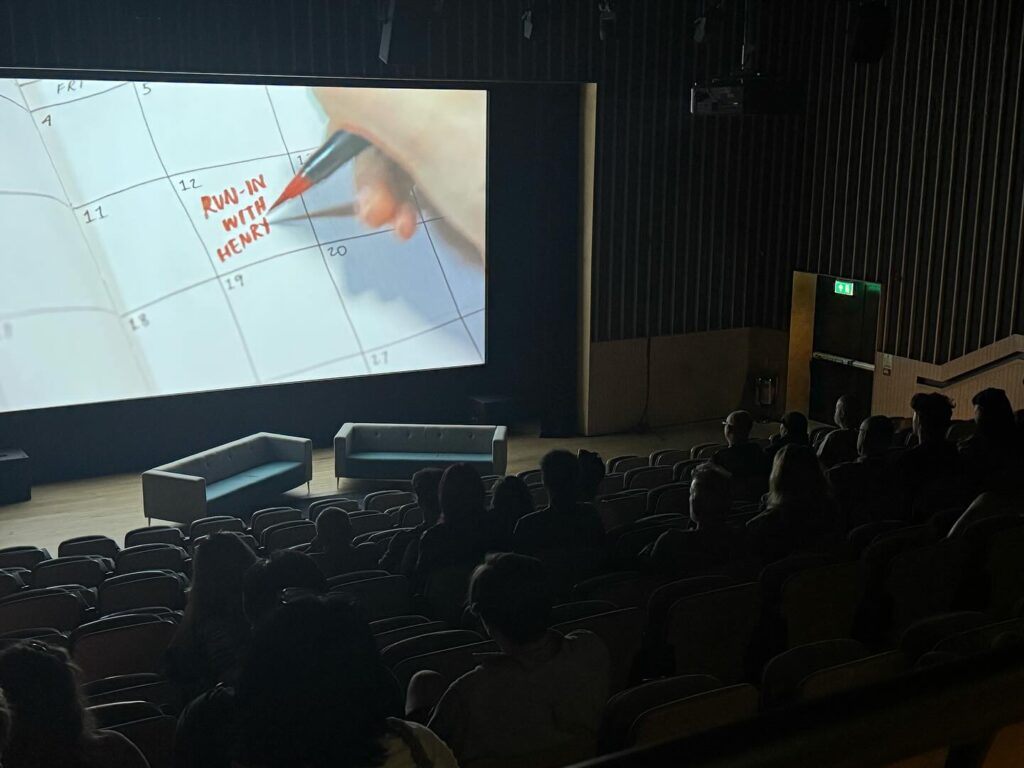
norwichuni_film We are back up and running for day 2 of our Gradfest 25 screenings! Need somewhere to bring Dad for Father’s Day ? Surprise him with a chance to see the next generation of emerging film talent 🙂 (opens in a new window)
-
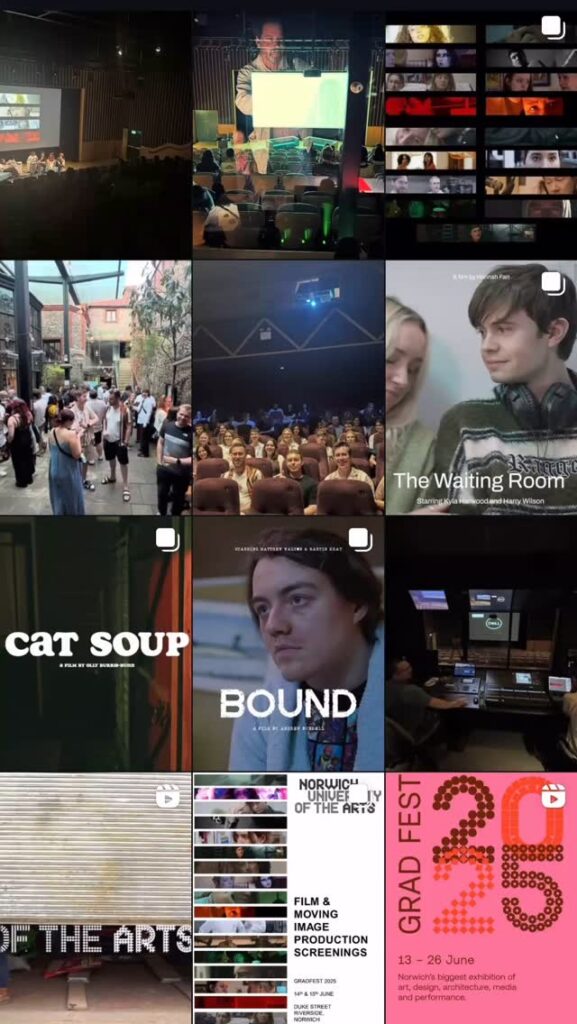
norwichuni_film Wrapping up on a really successful day of graduation screenings. Exciting to do it all again tomorrow ! Screening open at 10am and finish at 4.15 on Sunday in the Duke Street Riverside building (opens in a new window)
-
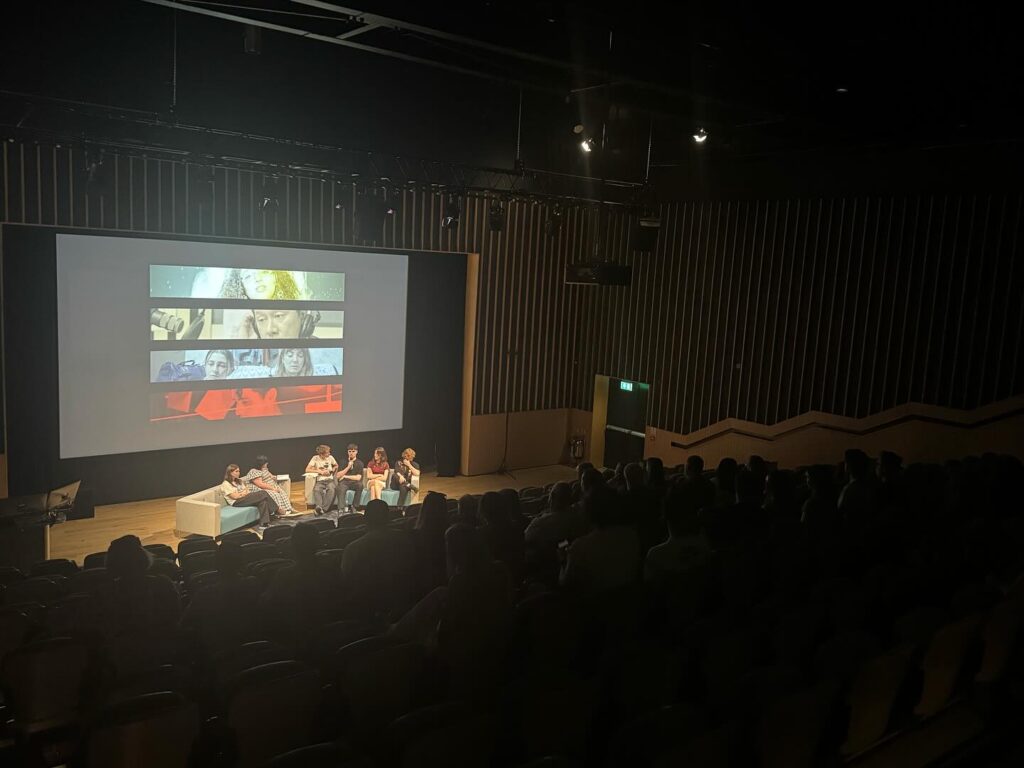
norwichuni_film Q&A to a packed house ! (opens in a new window)
-
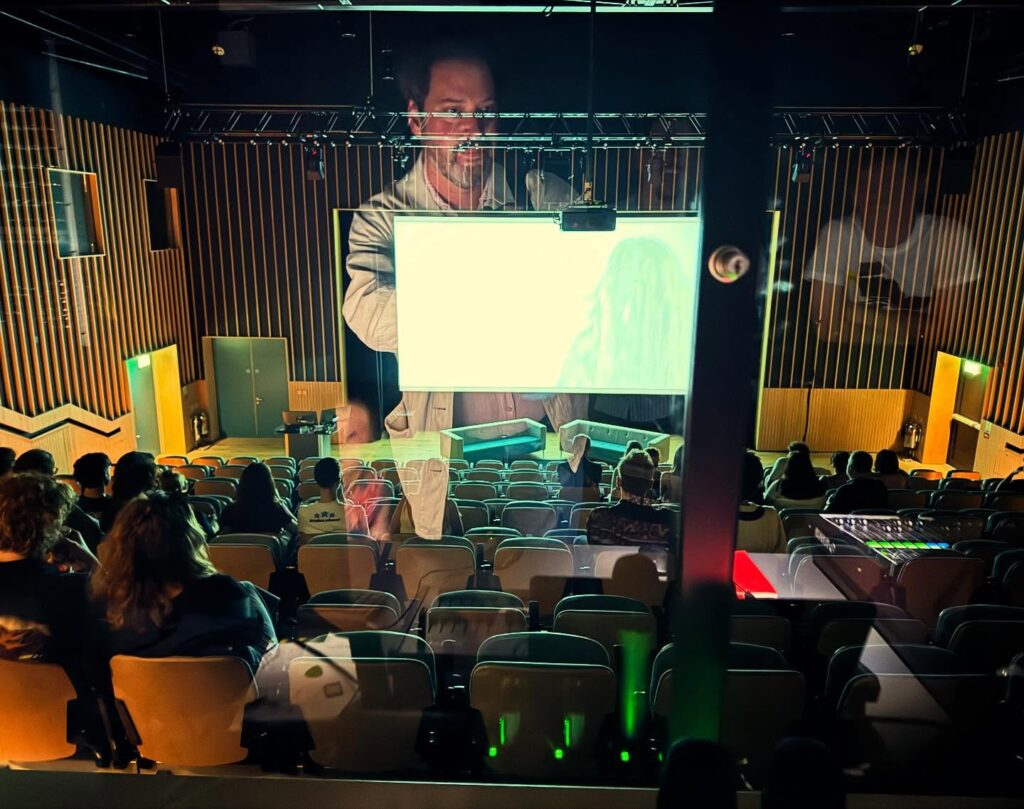
norwichuni_film Screenings up and running ! We have air con 🙂 (opens in a new window)
-
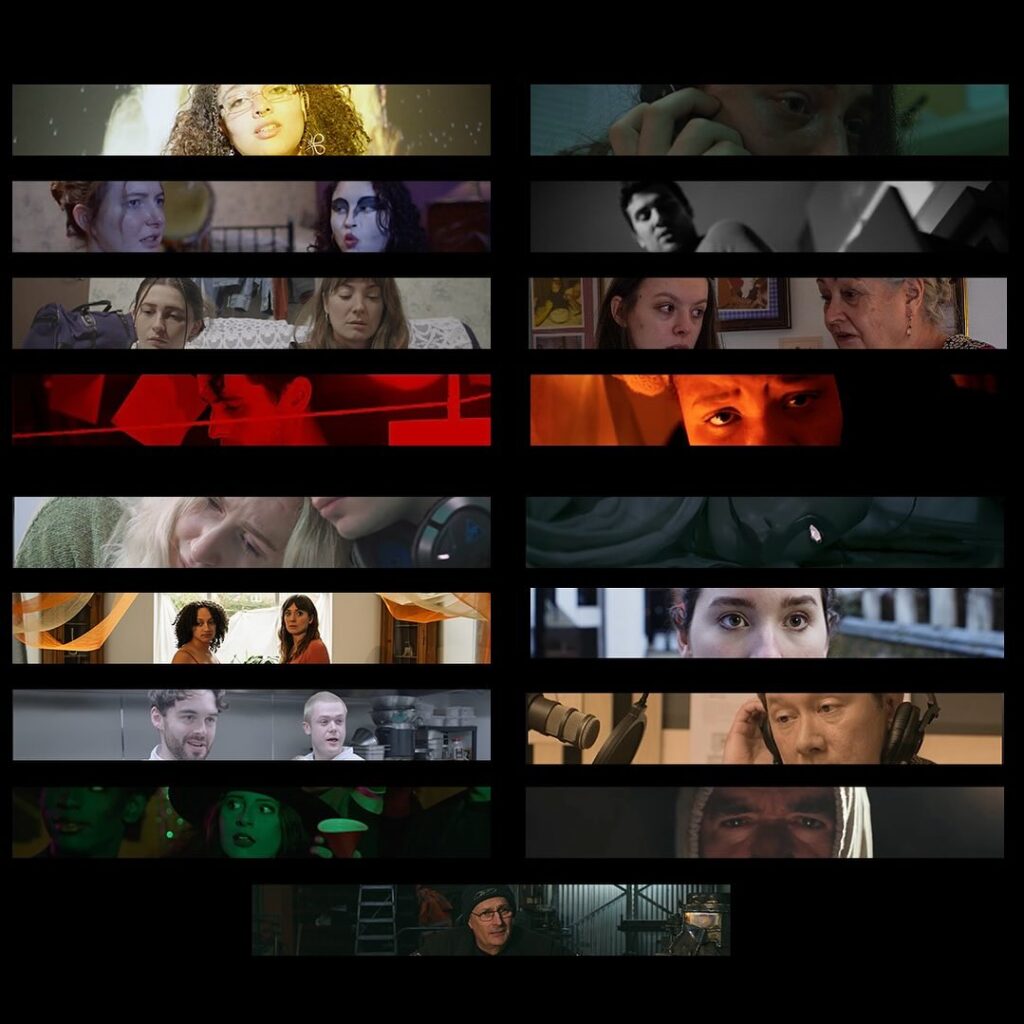
norwichuni_film Gradfest 25 Film Screening have just started ! Join us all weekend , 10.00 until 4.30 each day ! (opens in a new window)
-
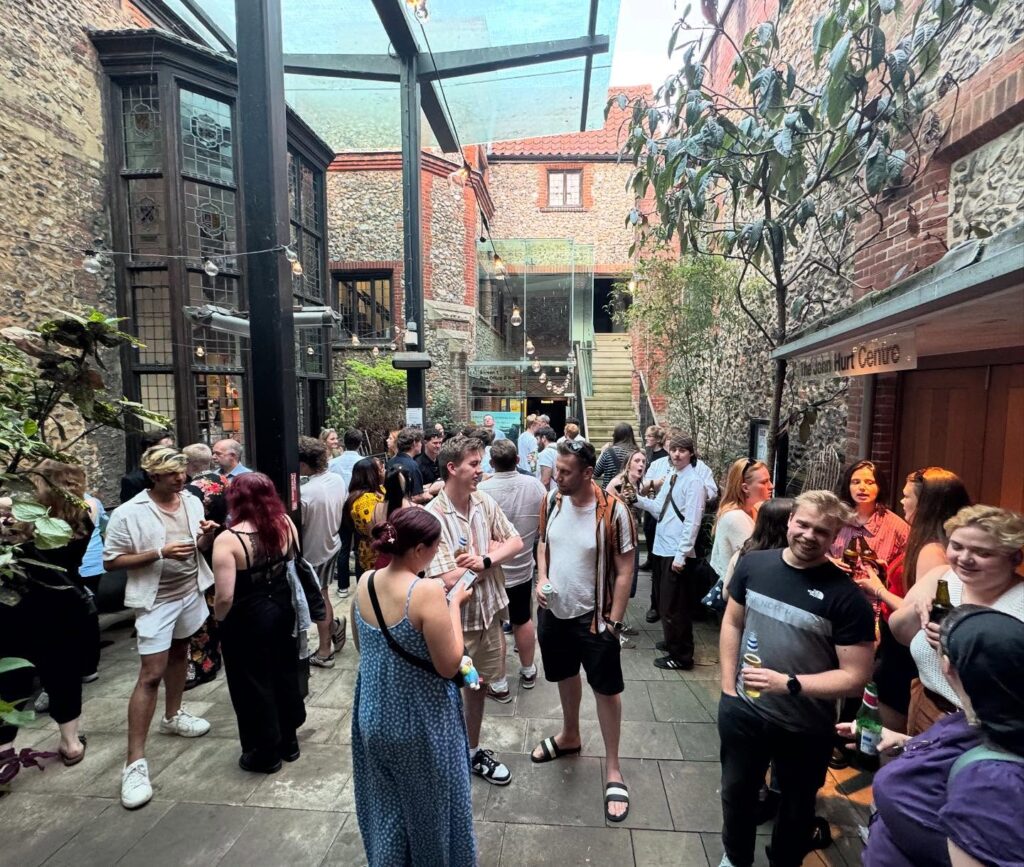
norwichuni_film A huge well done to our year 3 students ! Enjoy the rest of the celebrations this evening 🙂 (opens in a new window)
1 / 1 -
